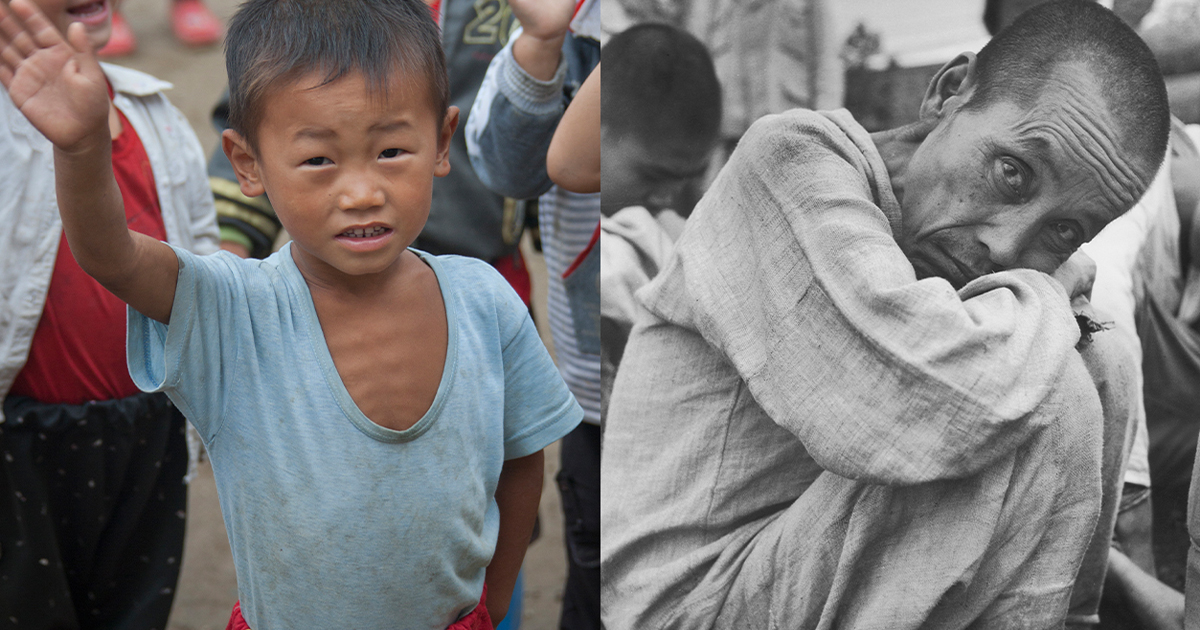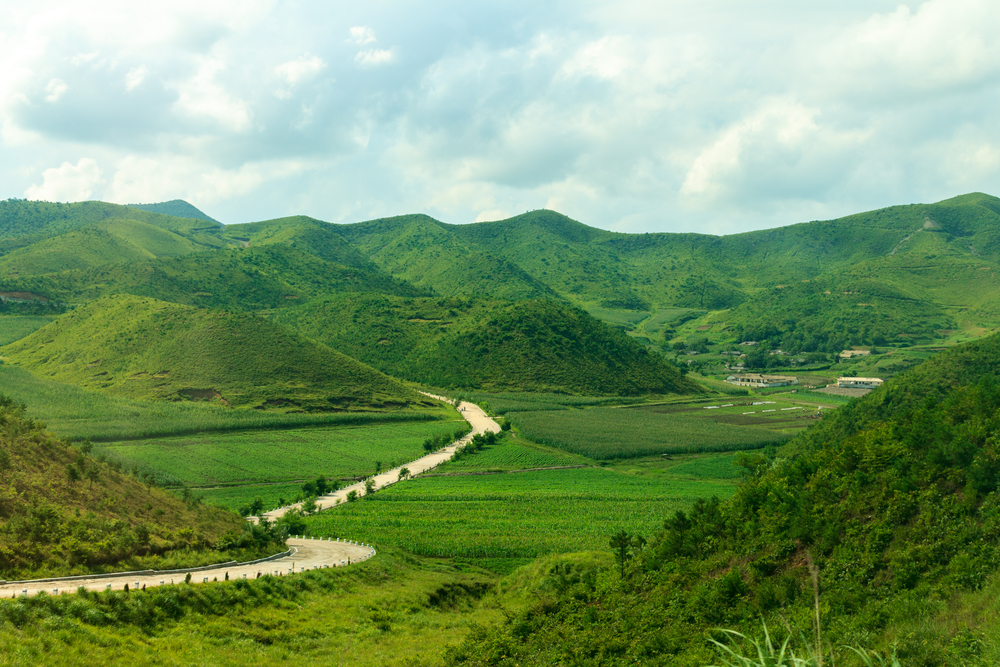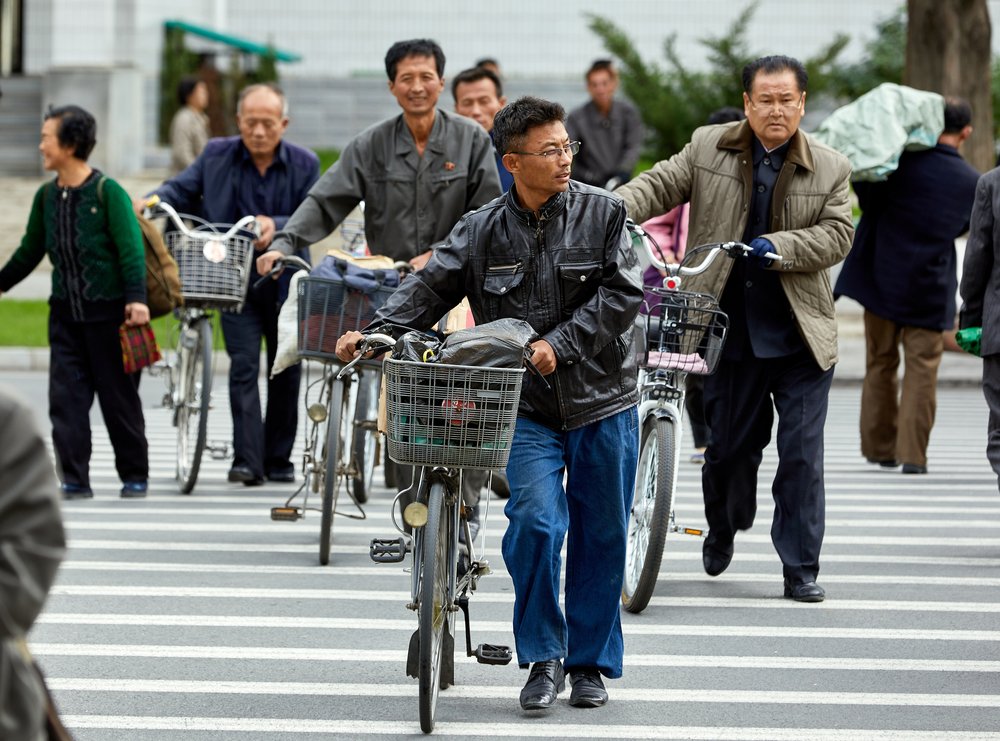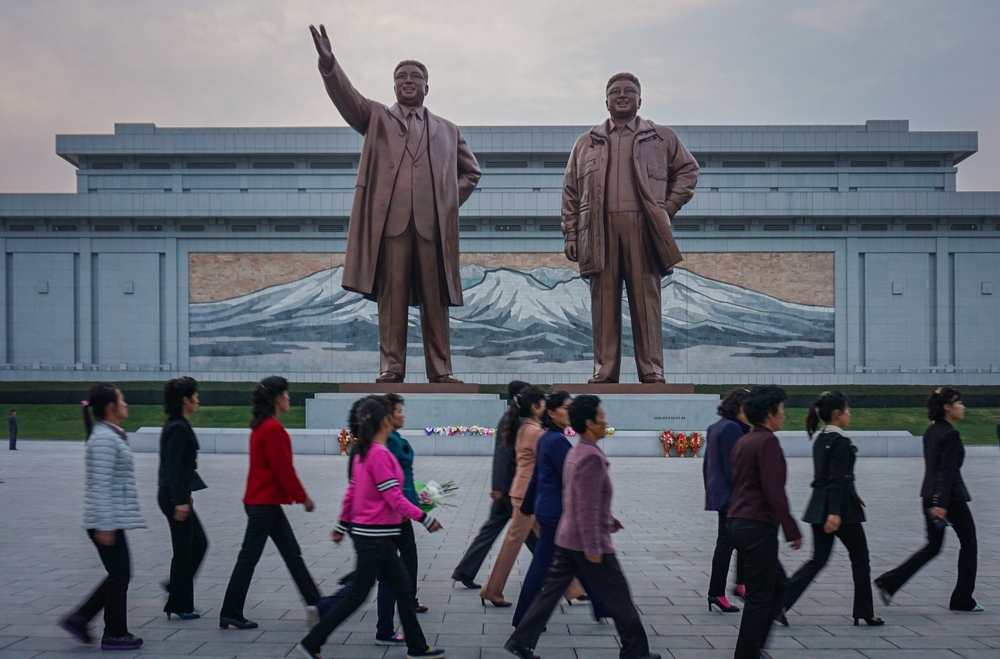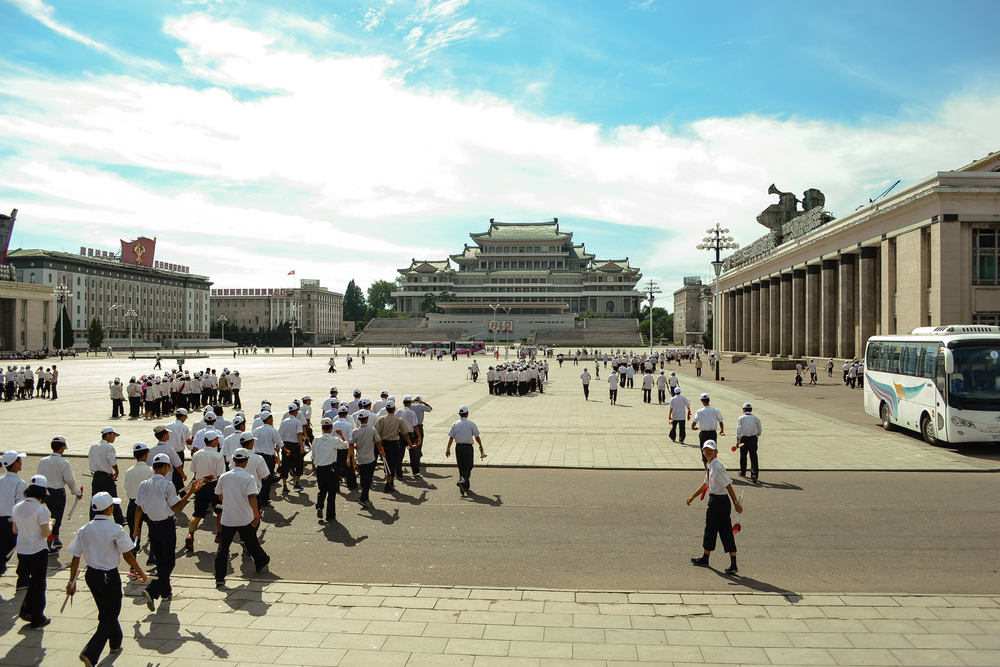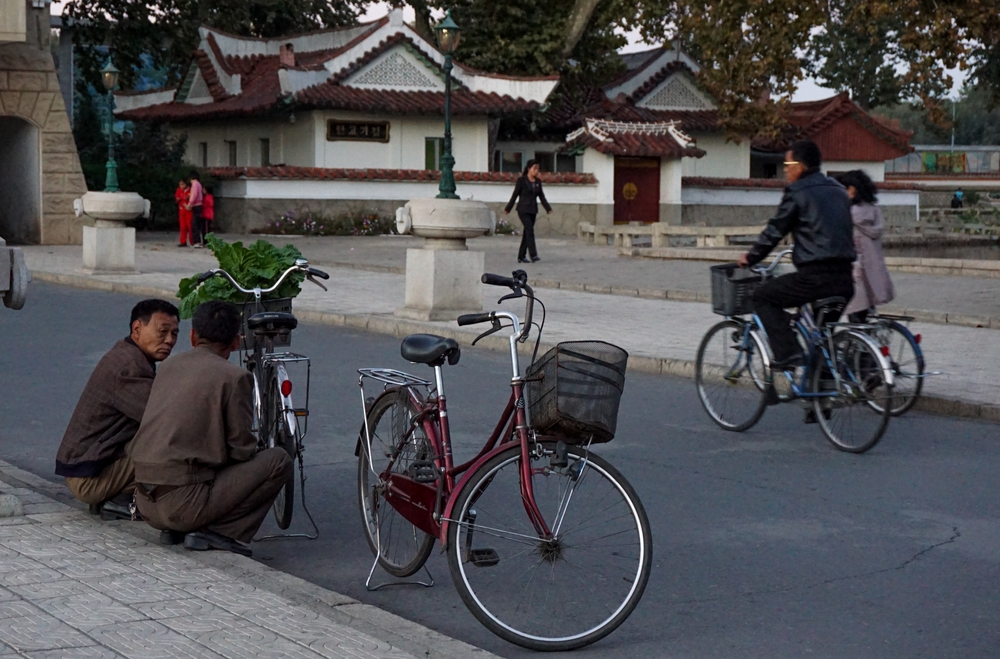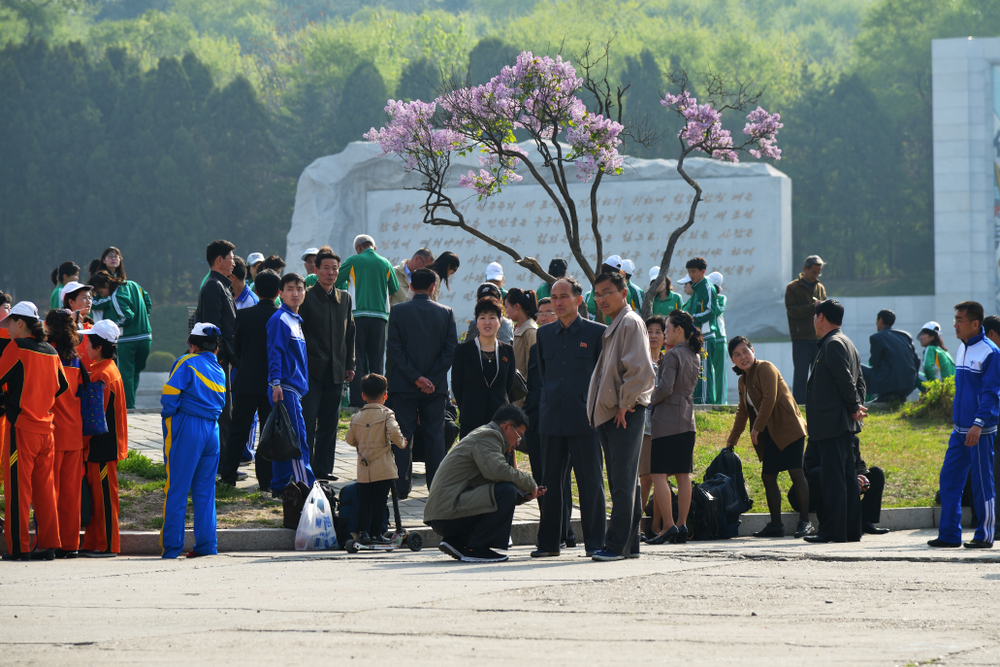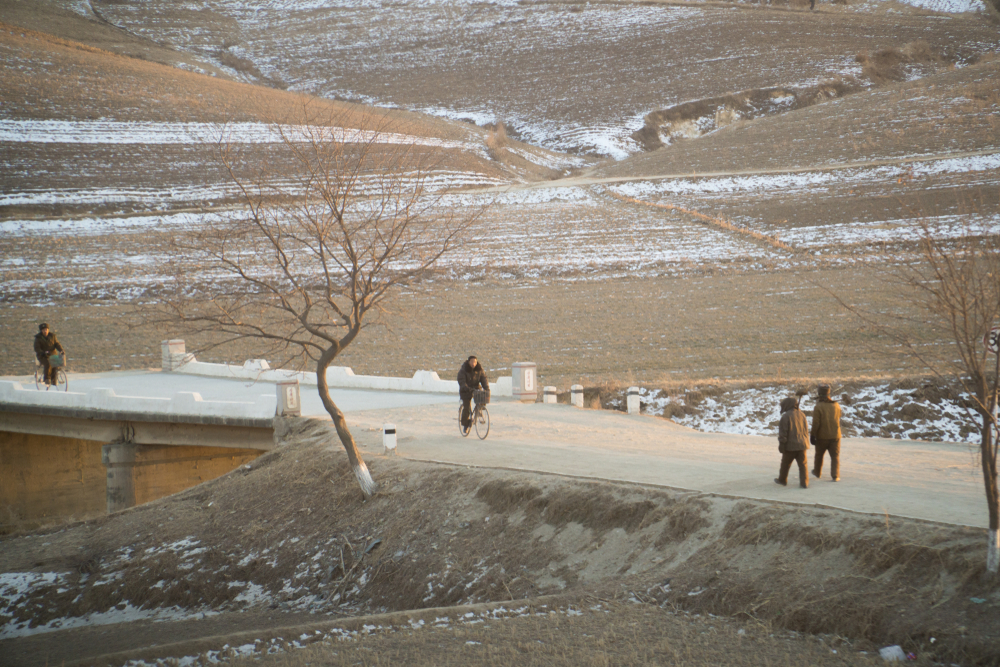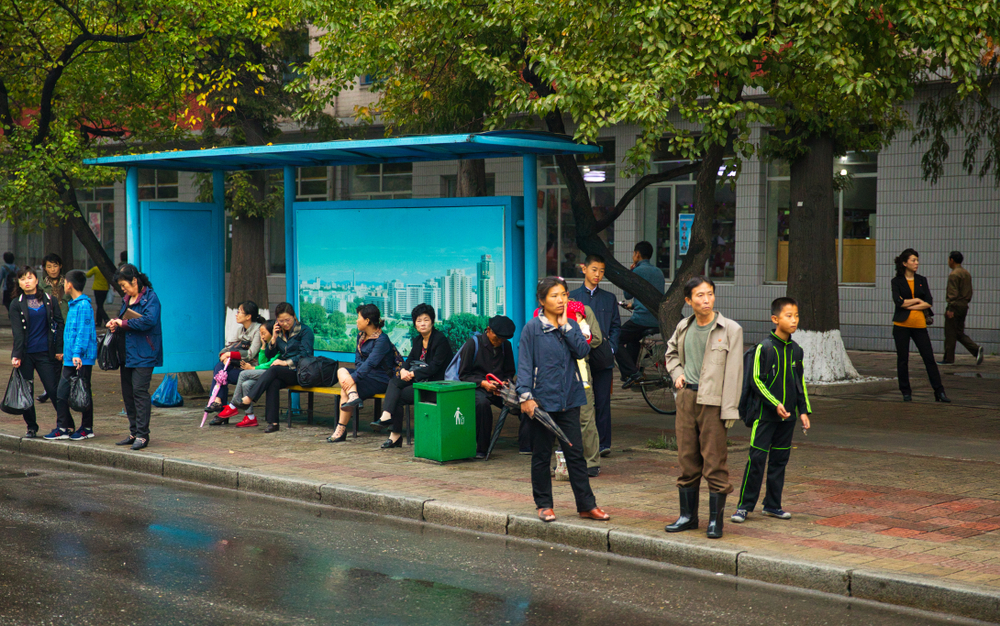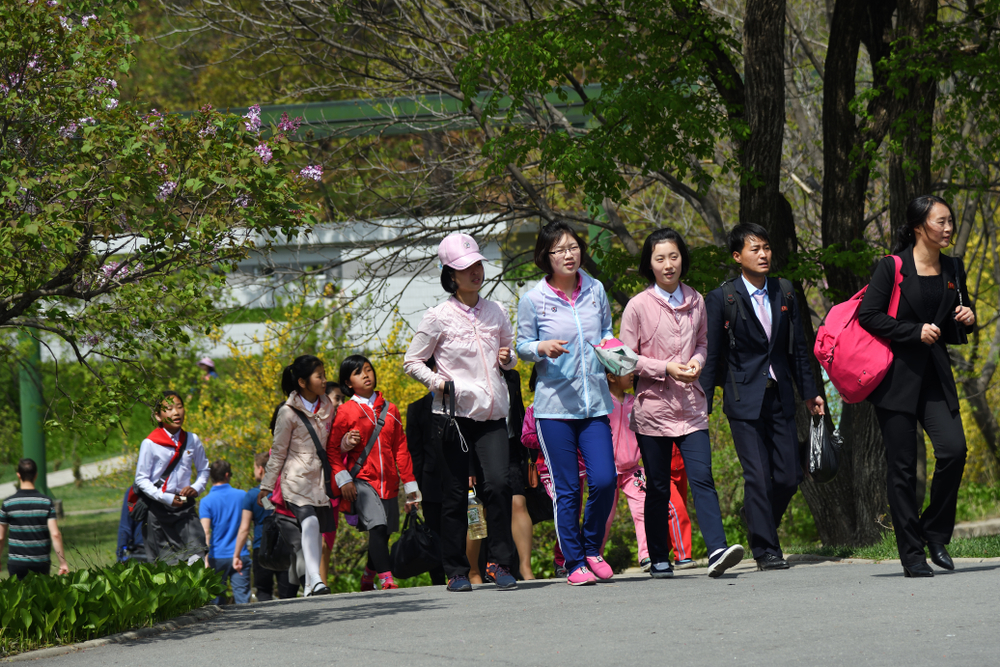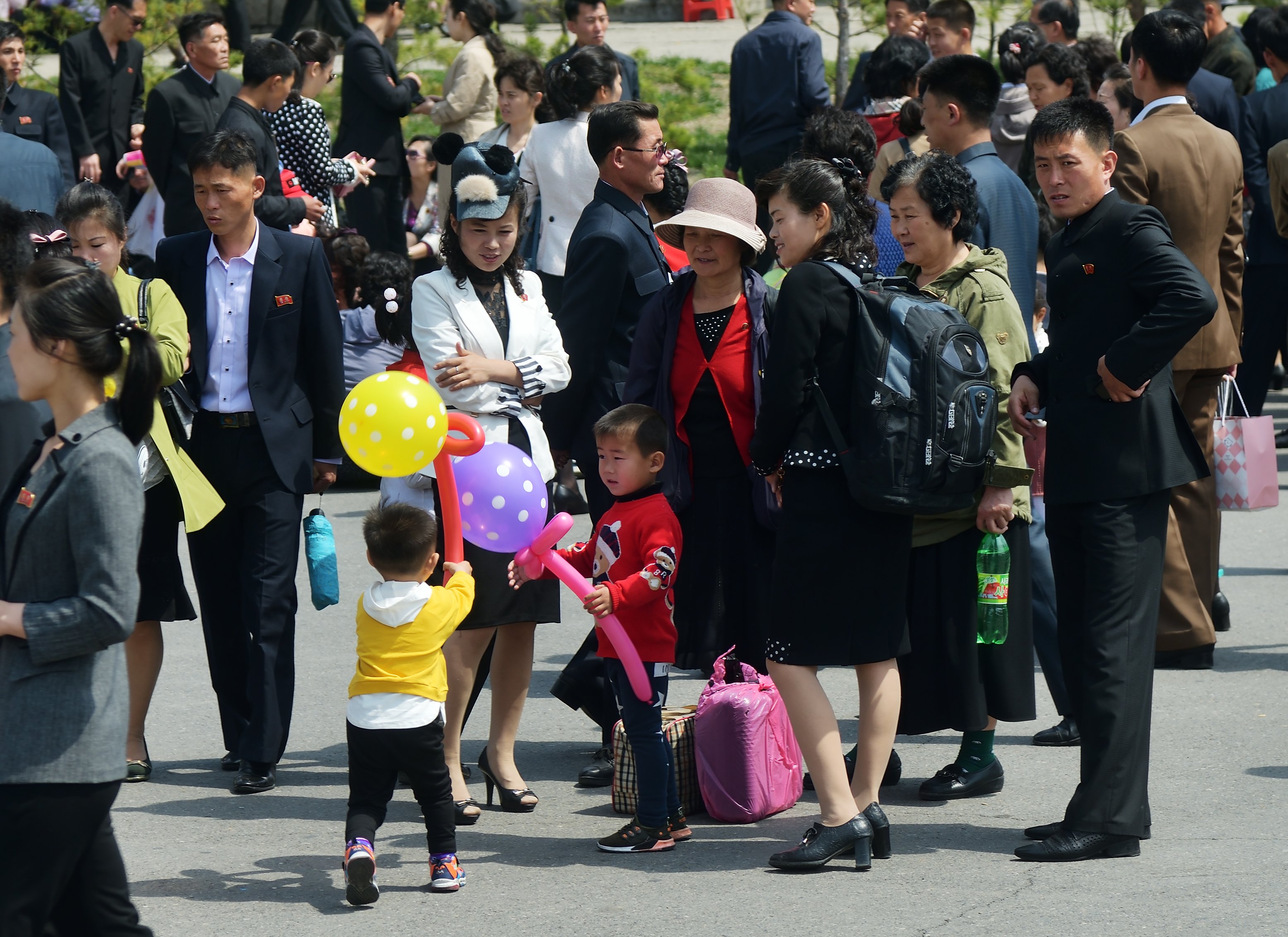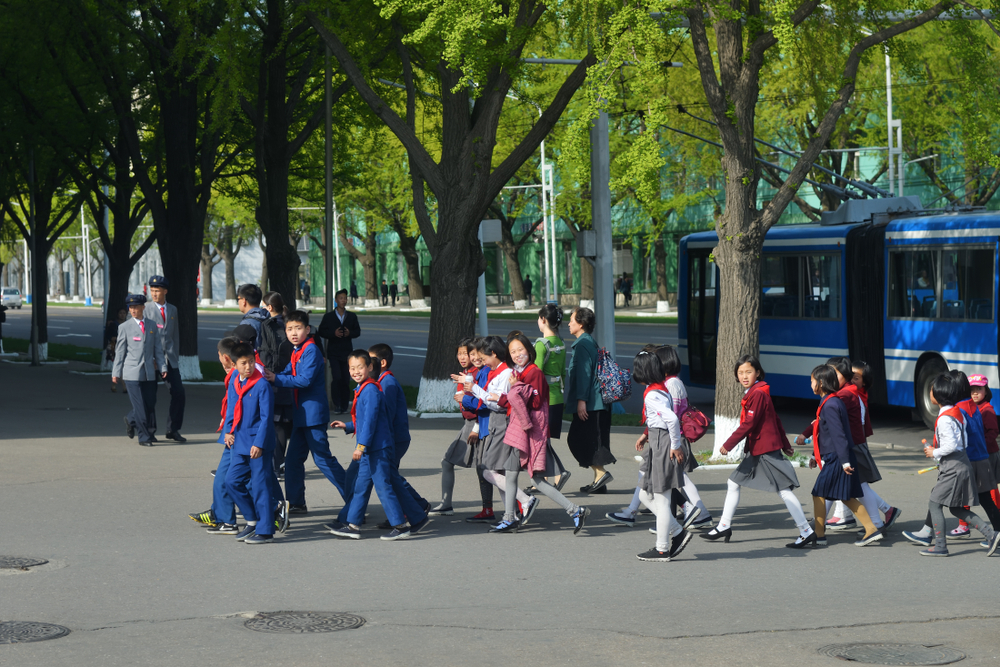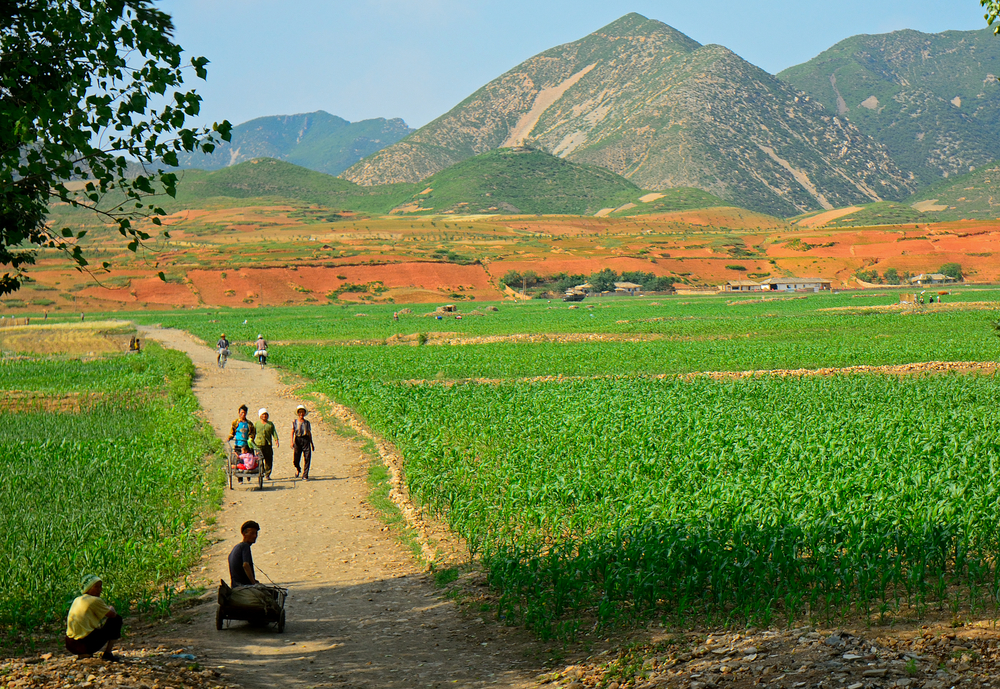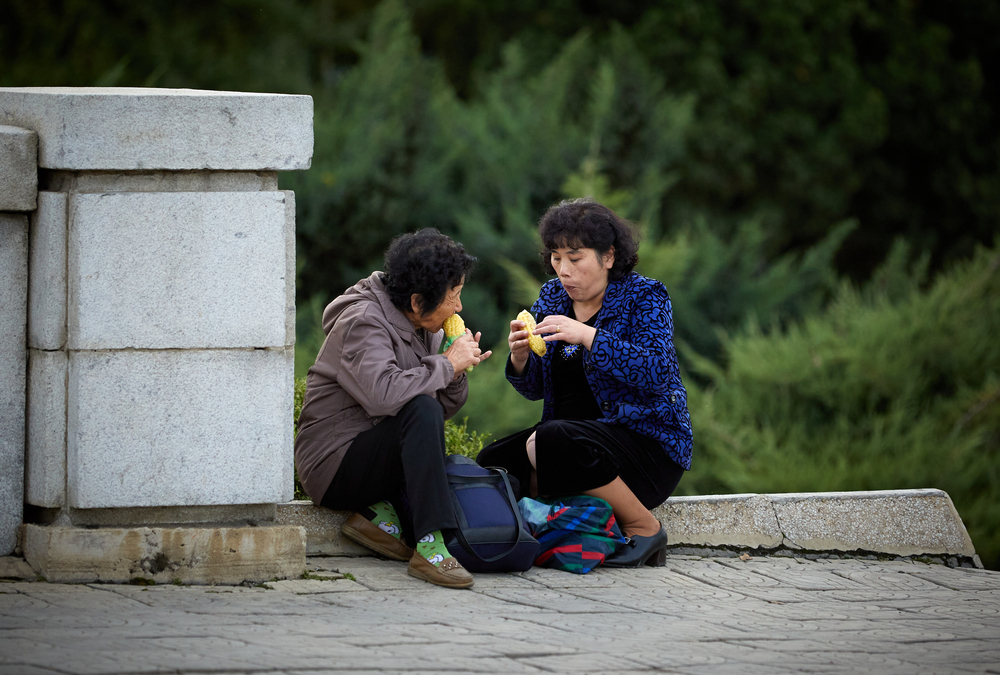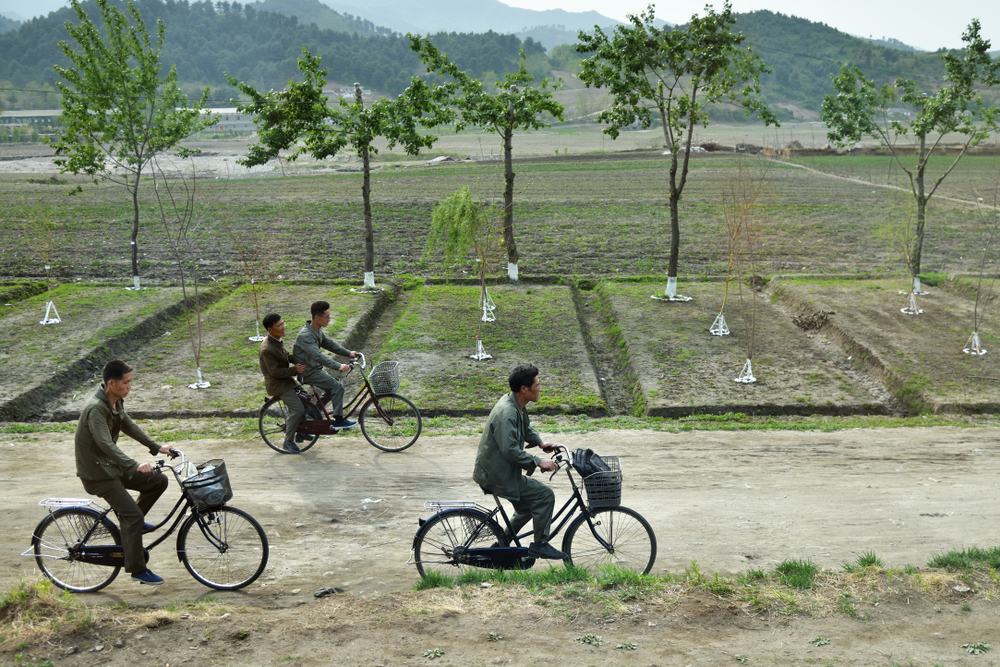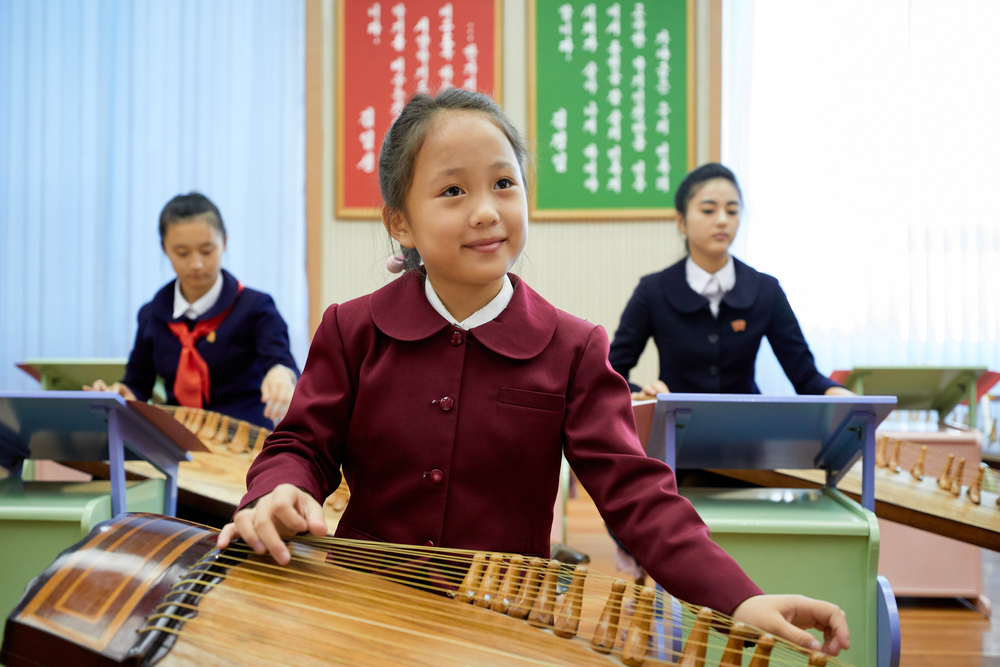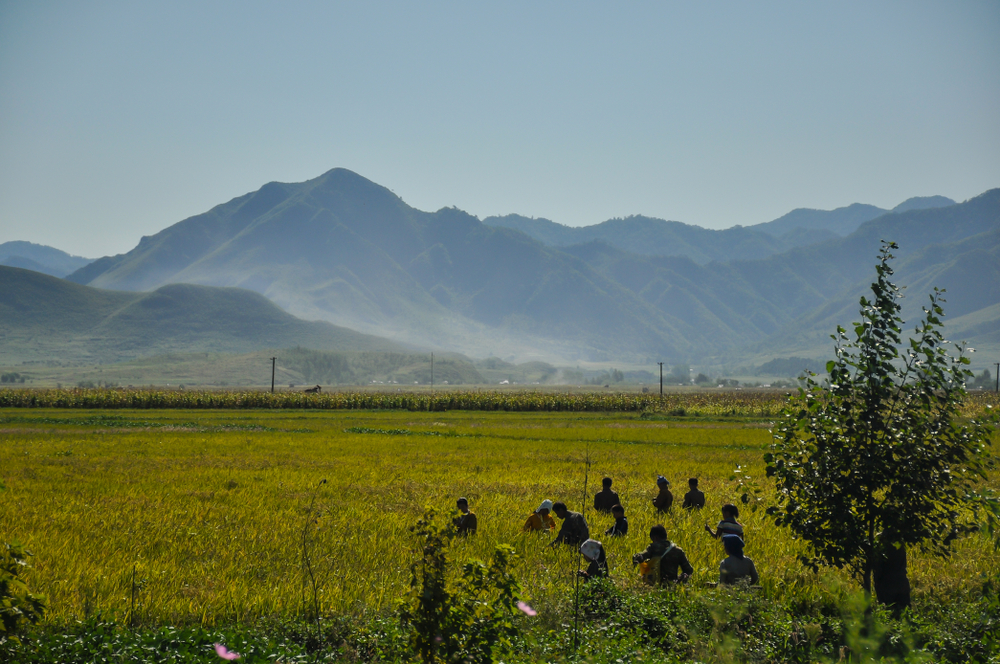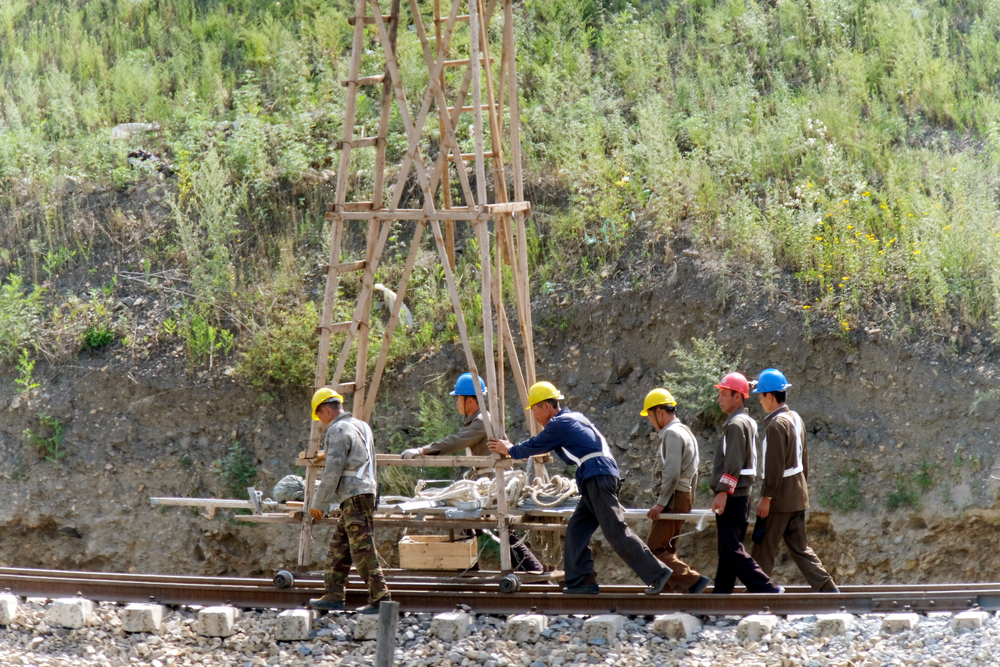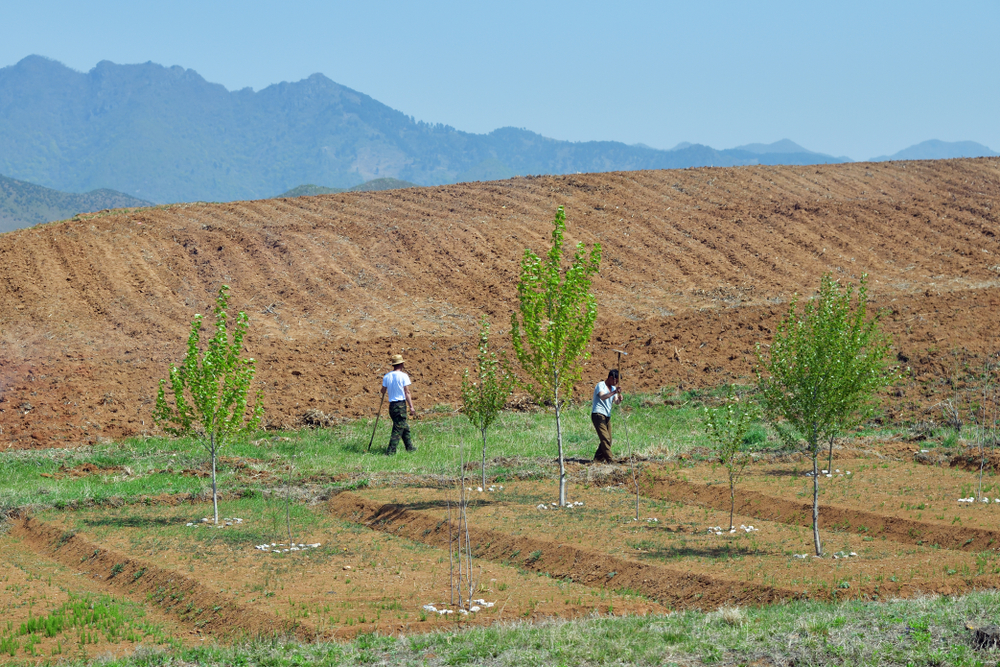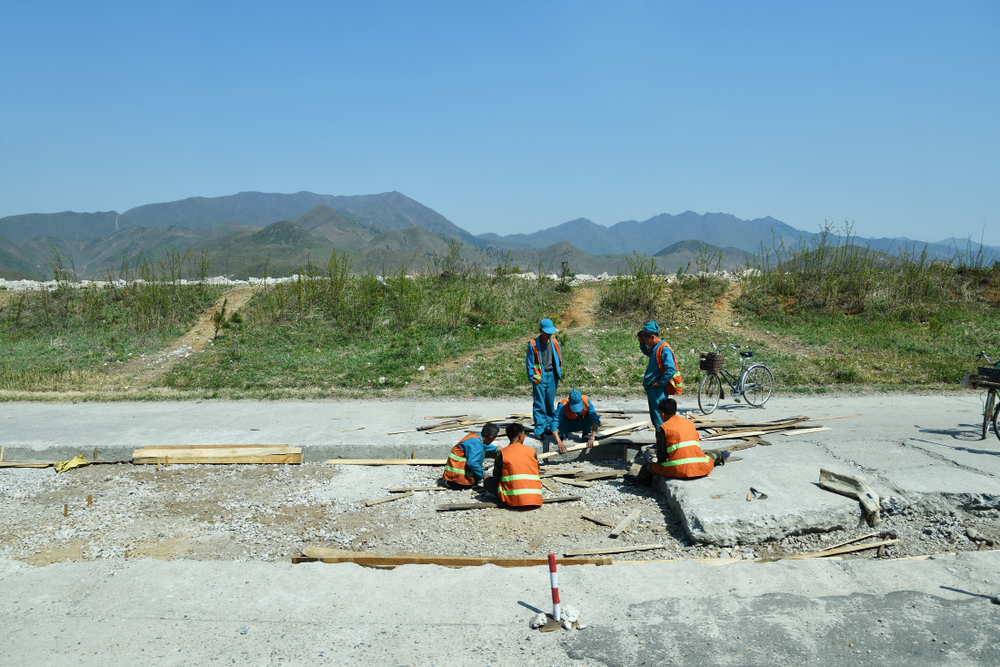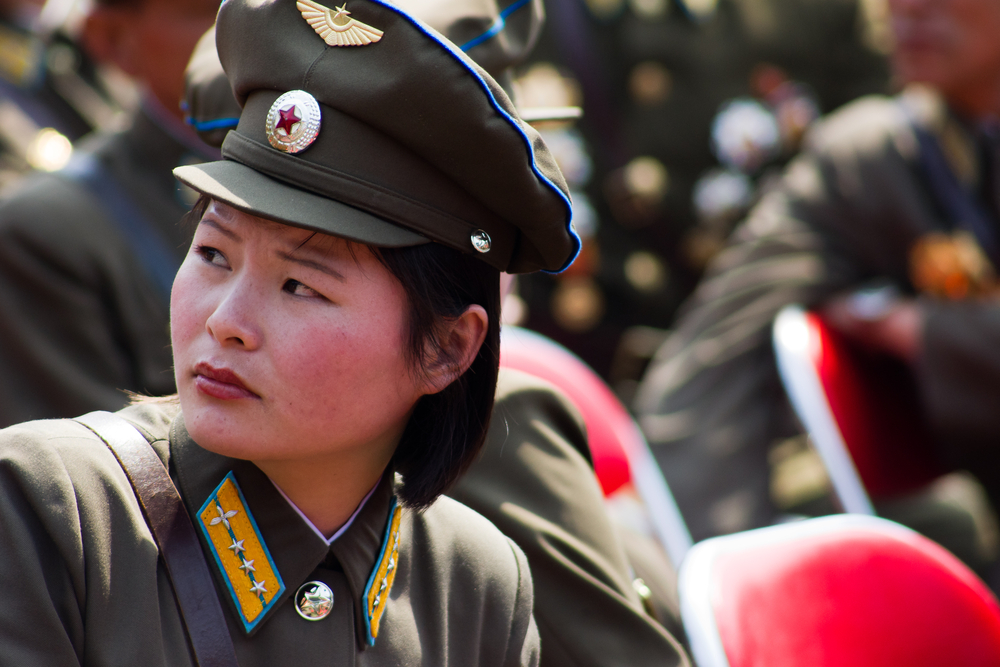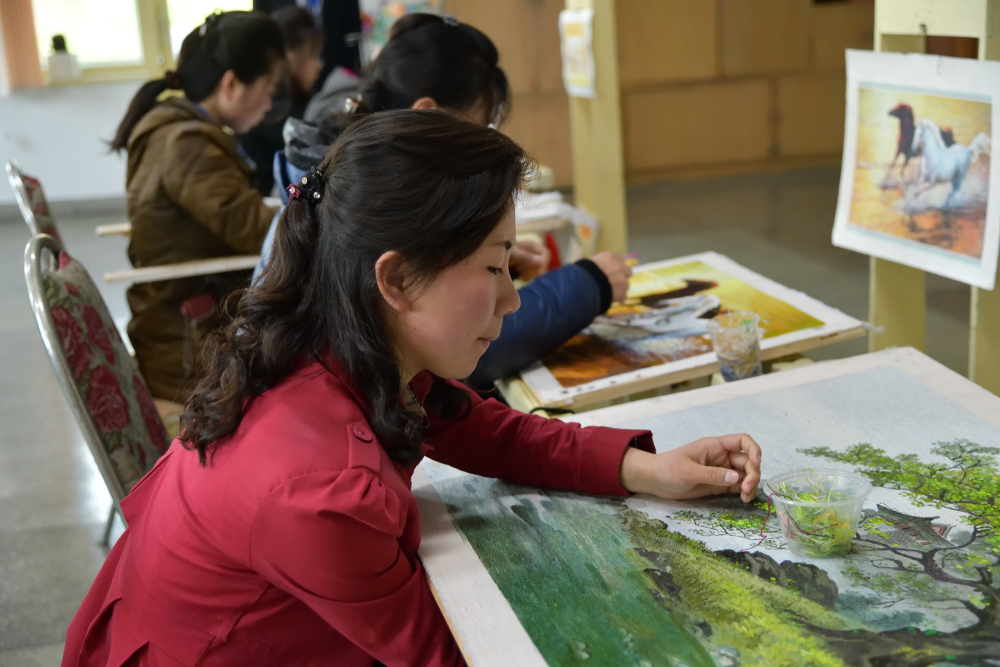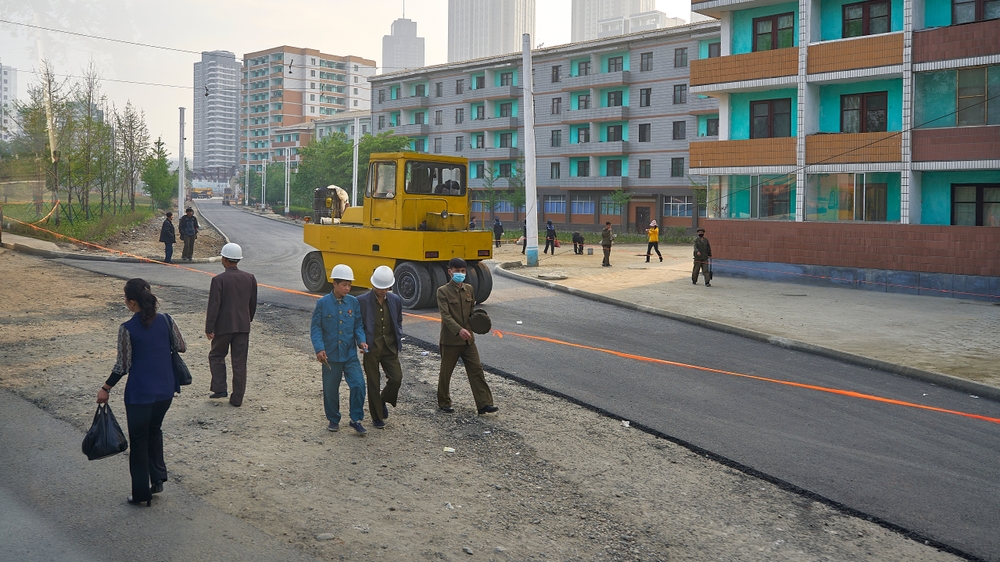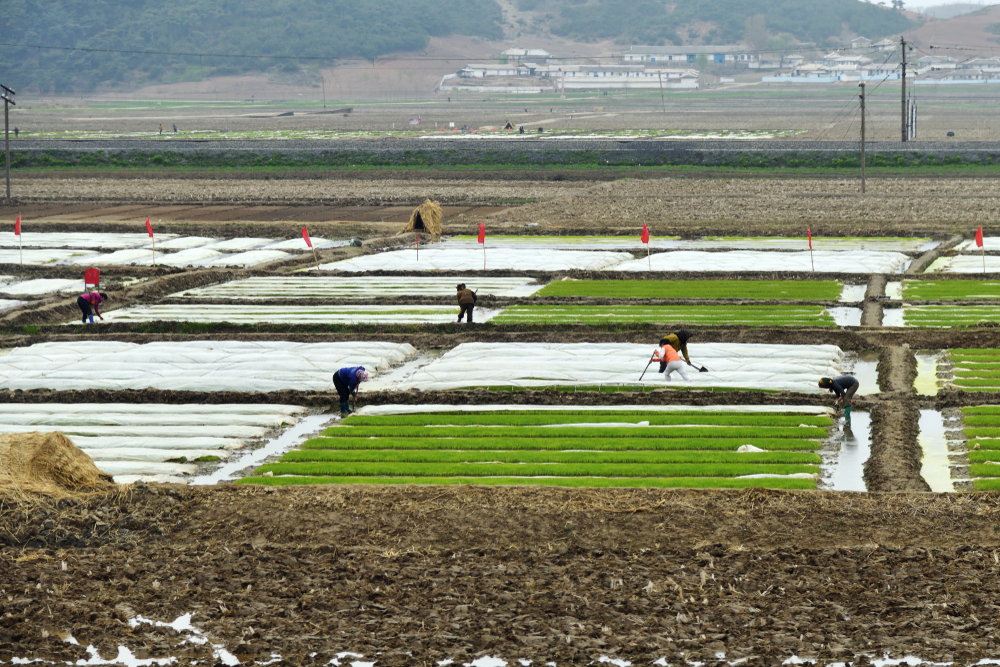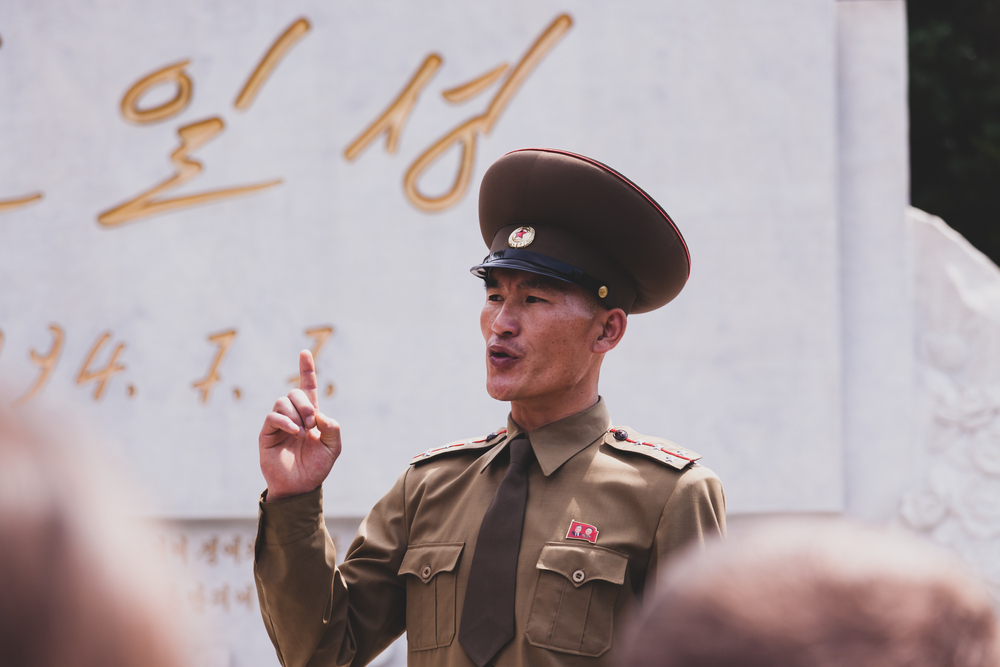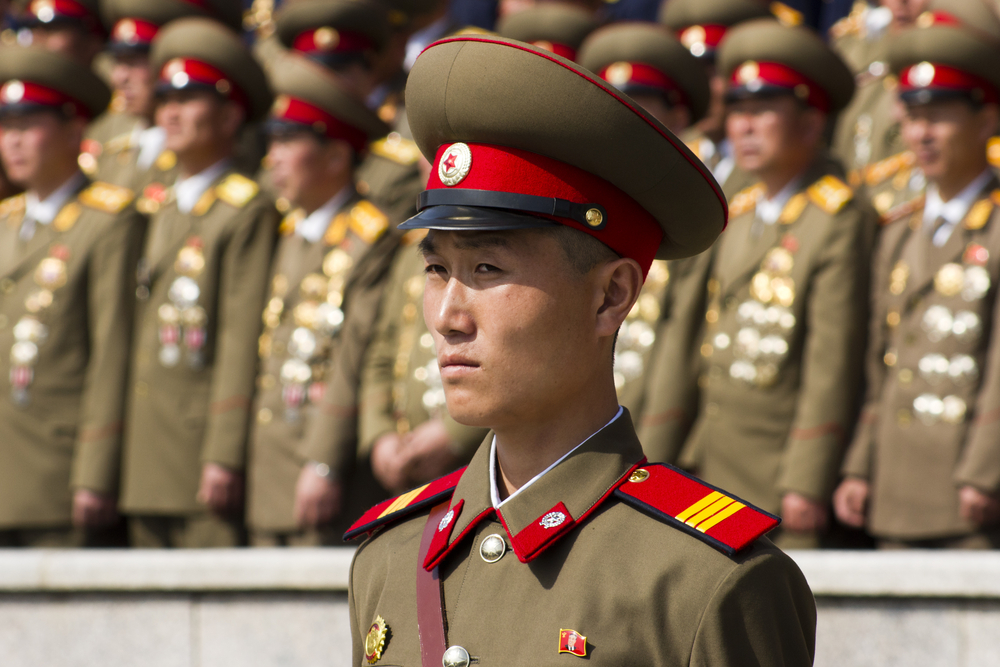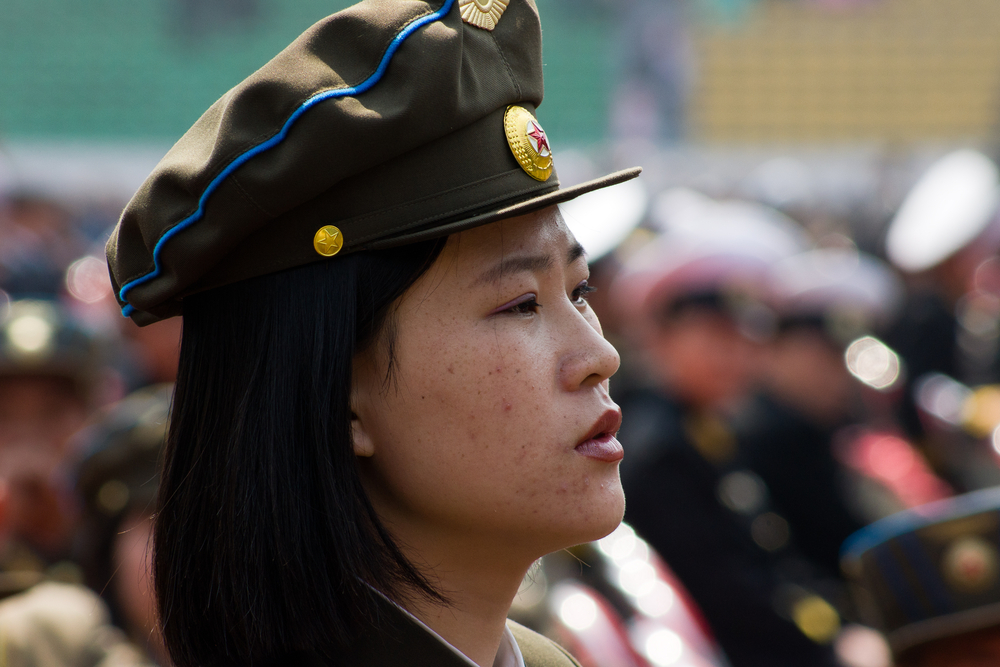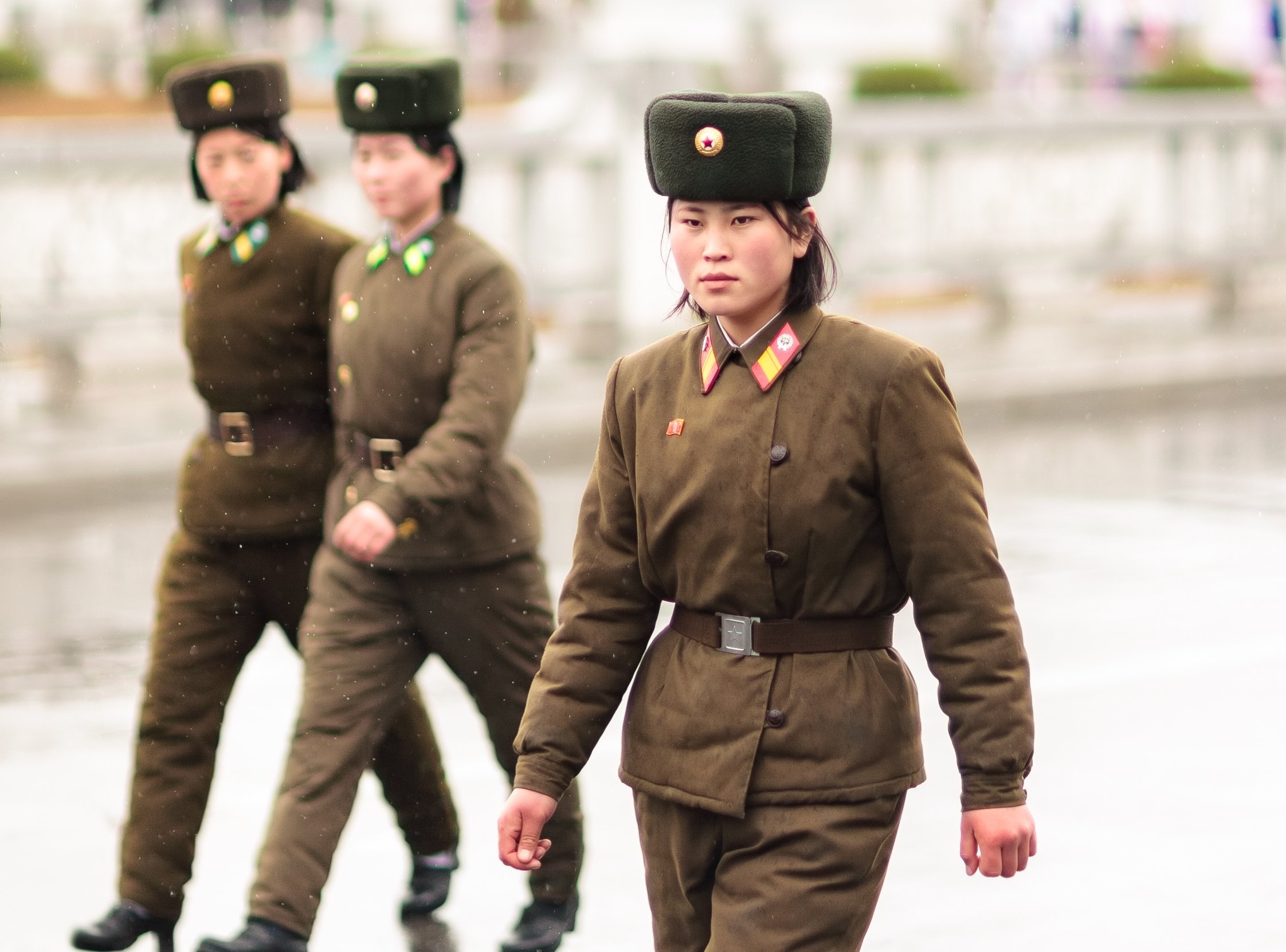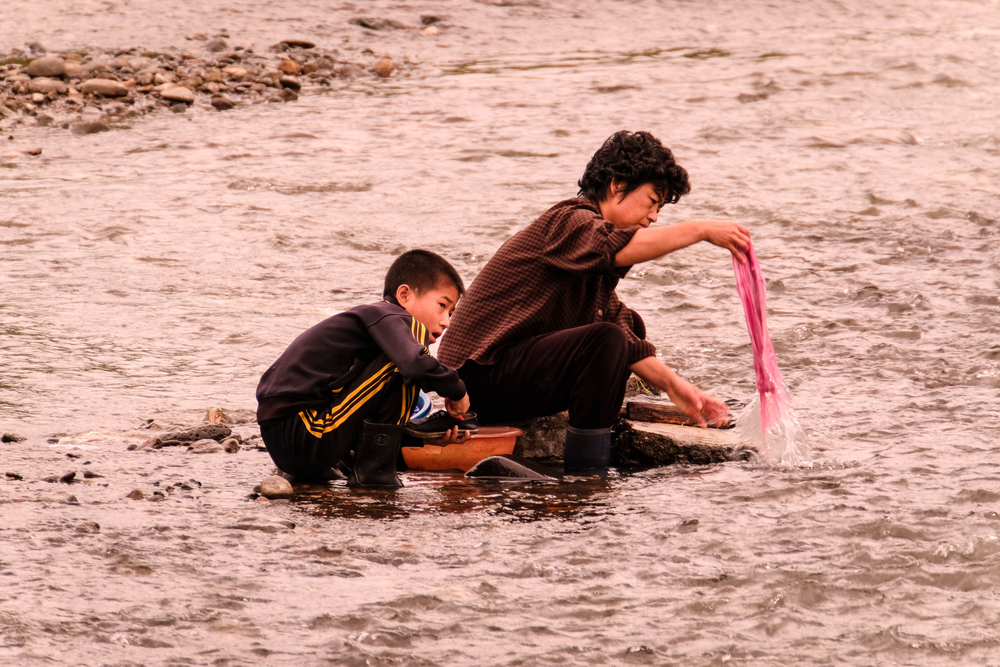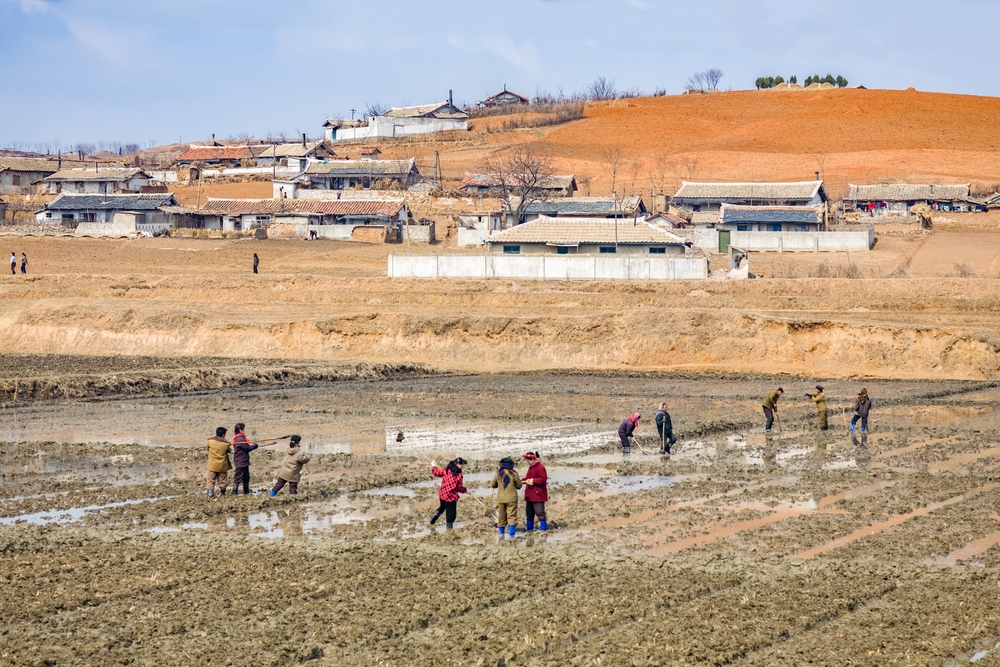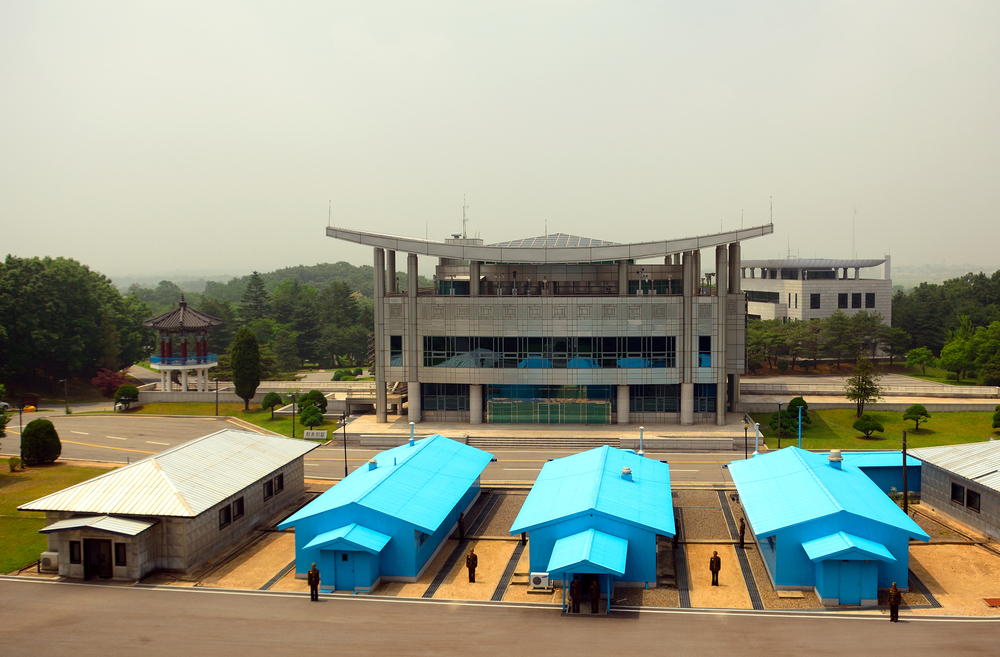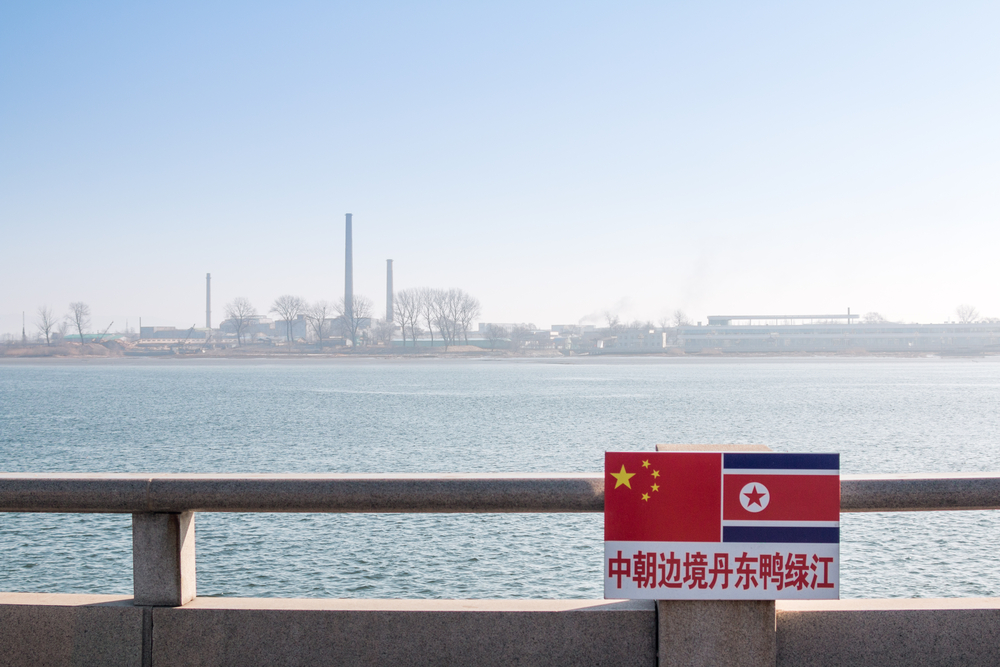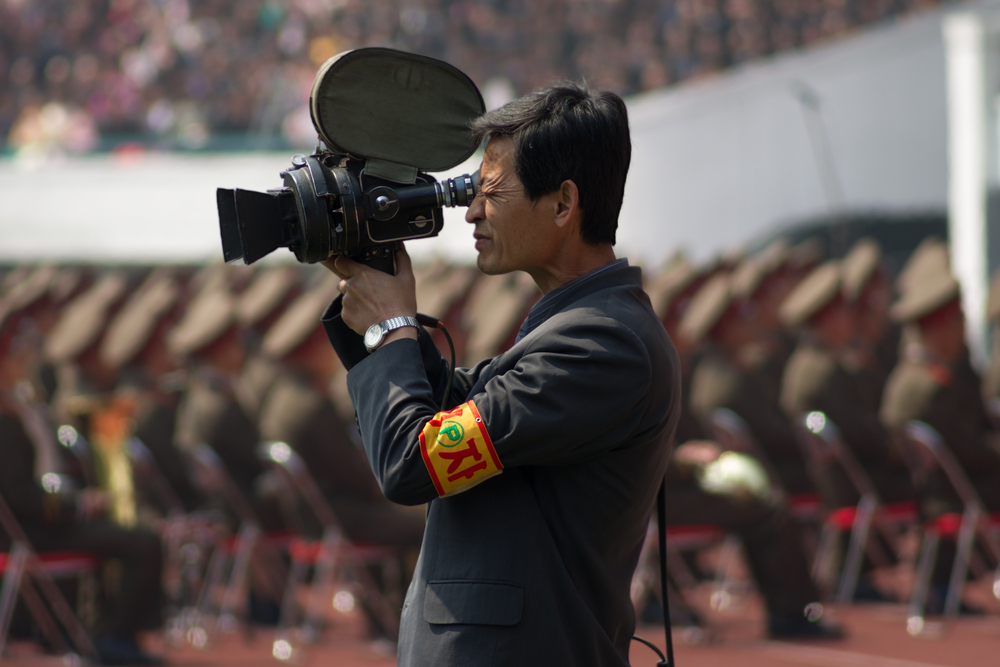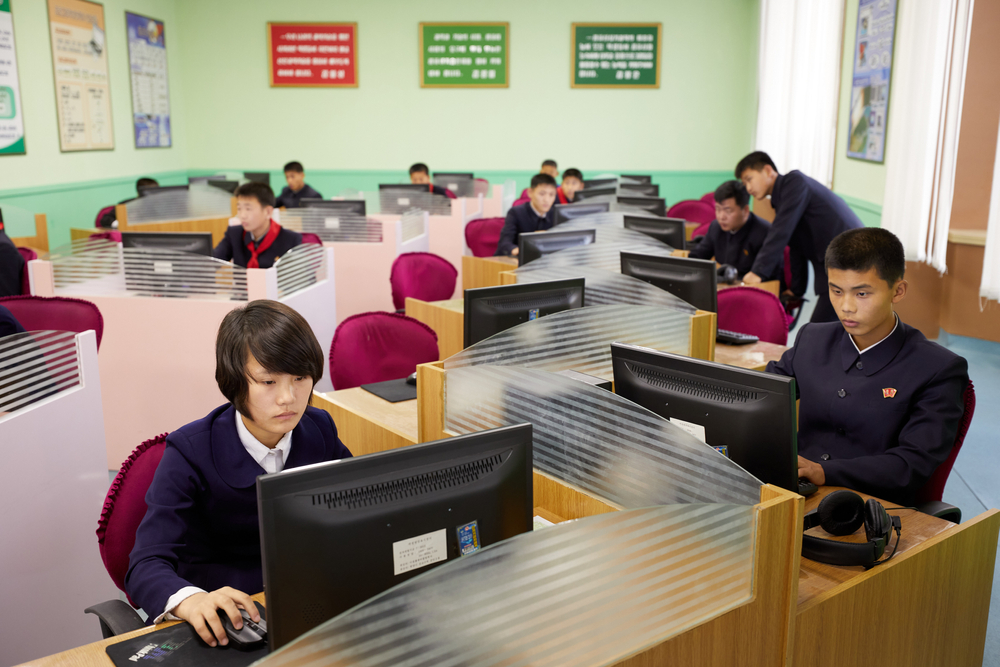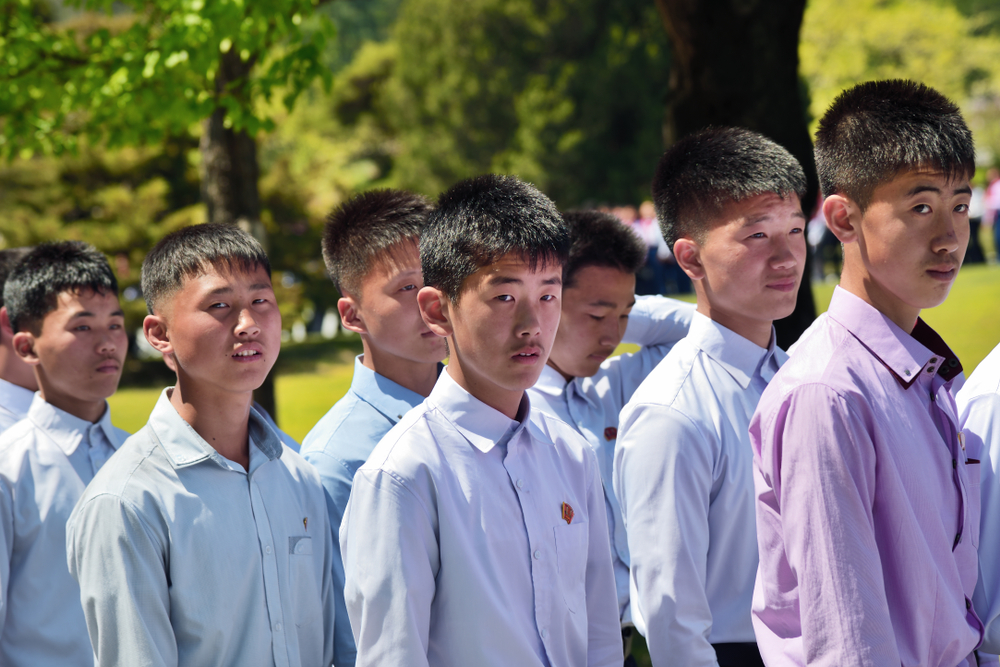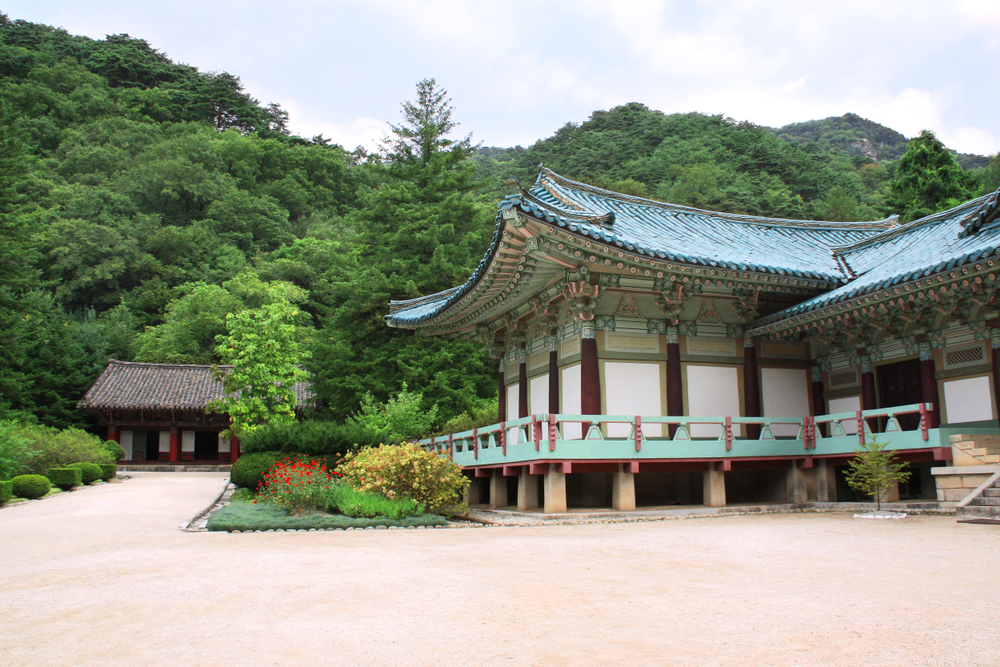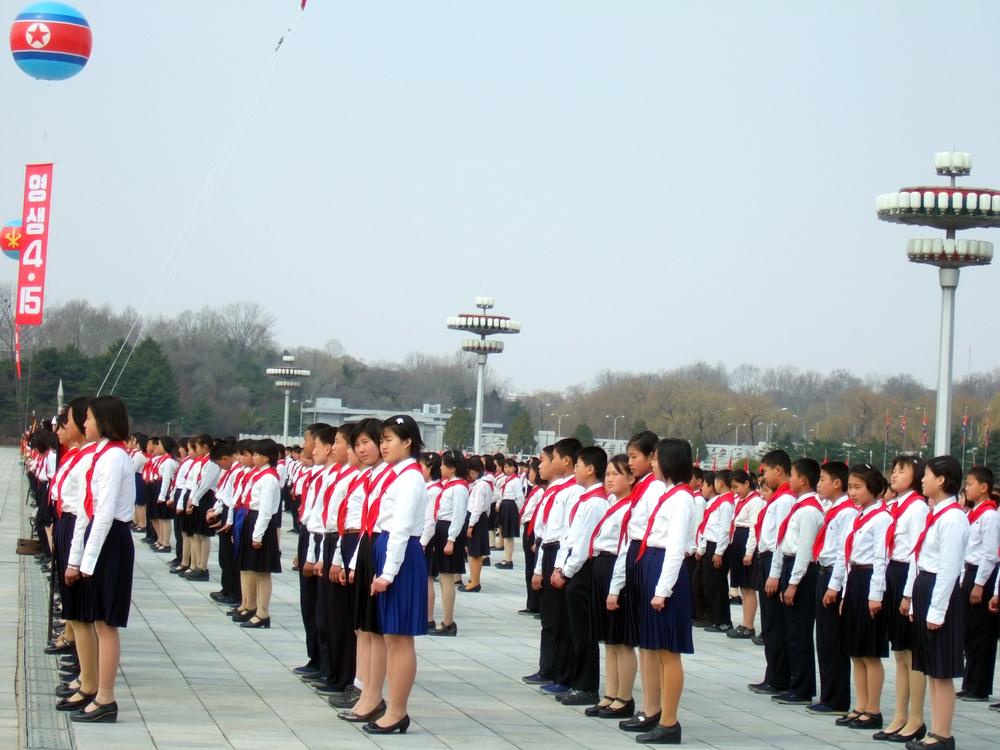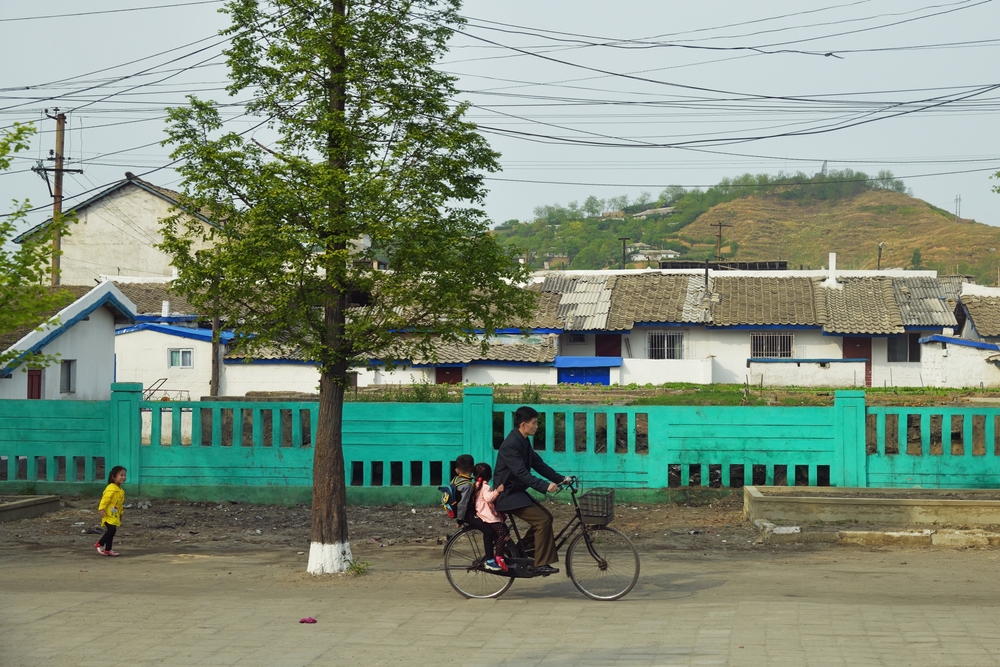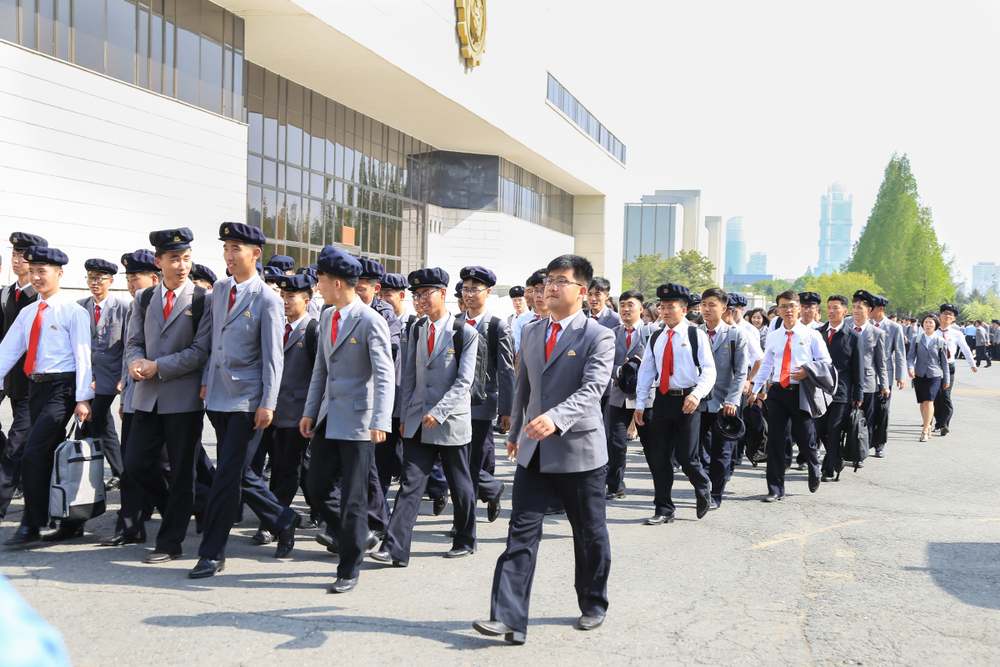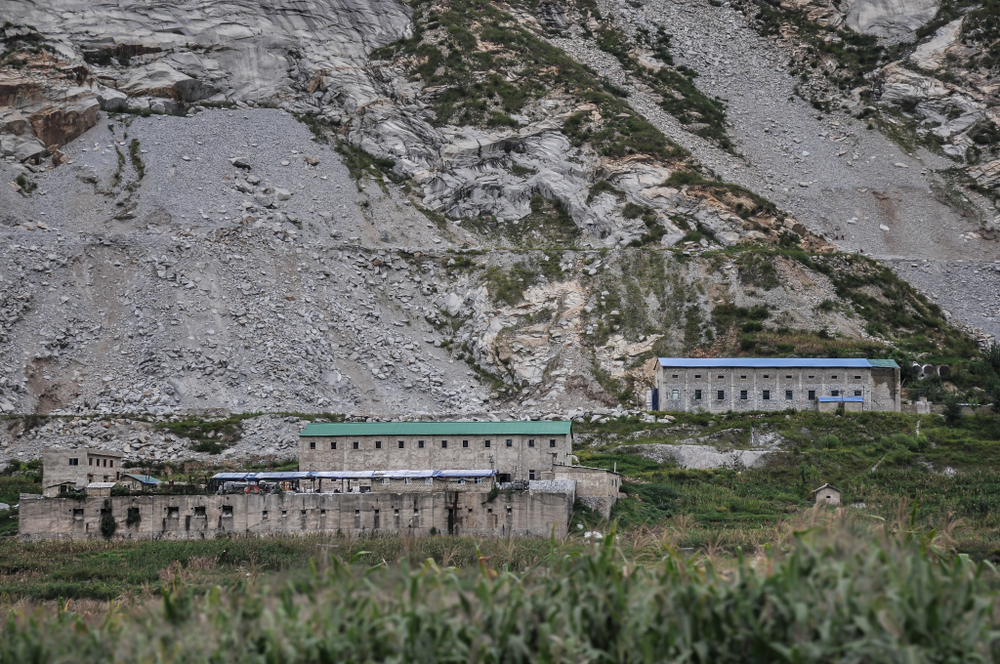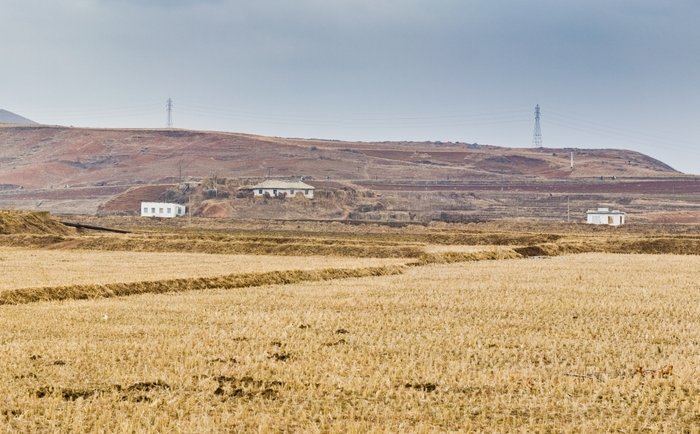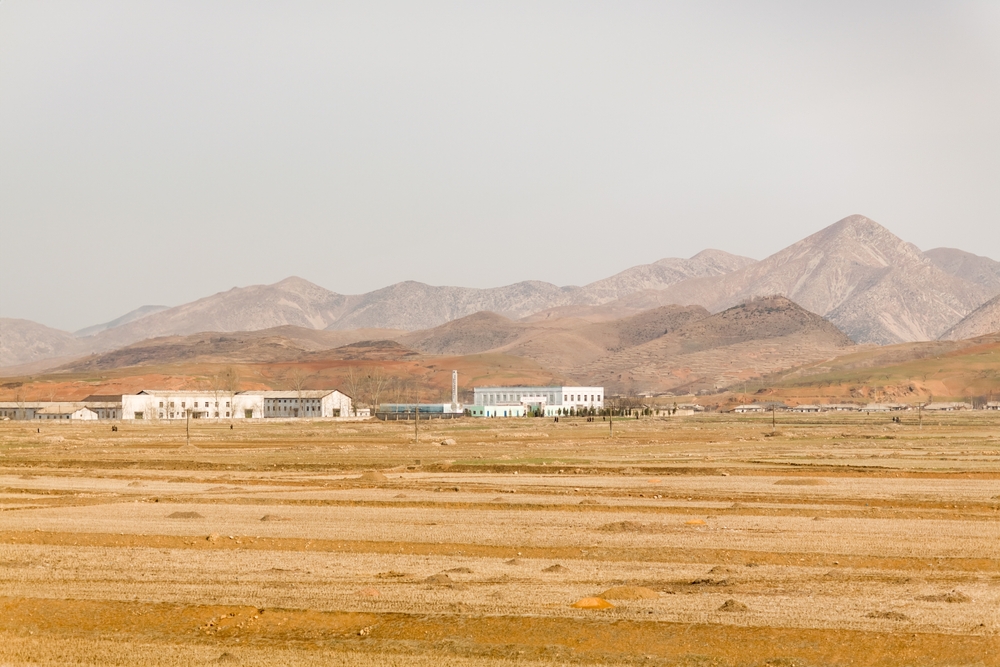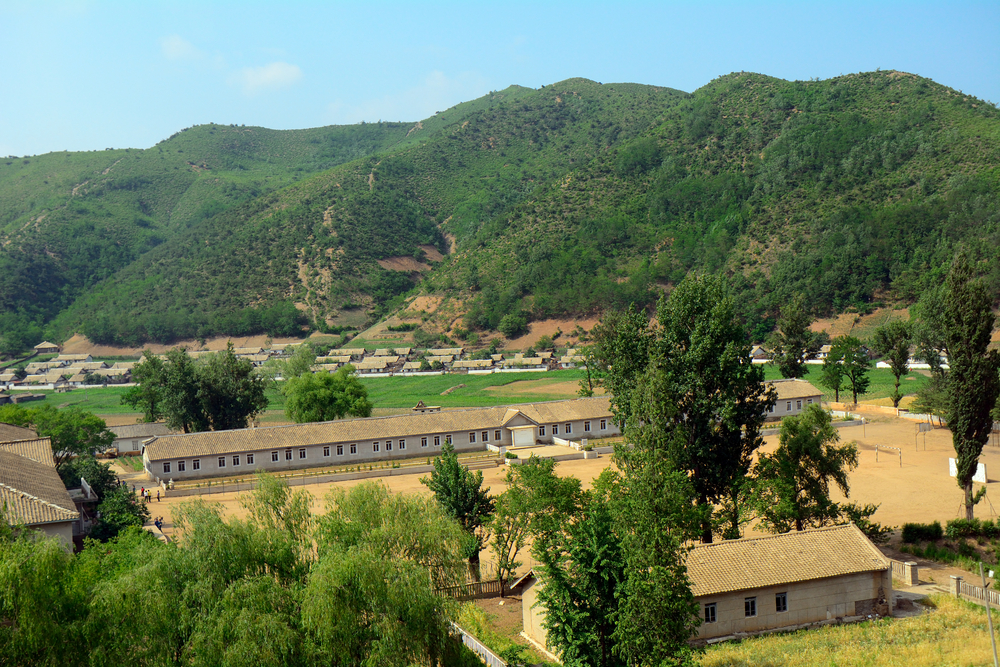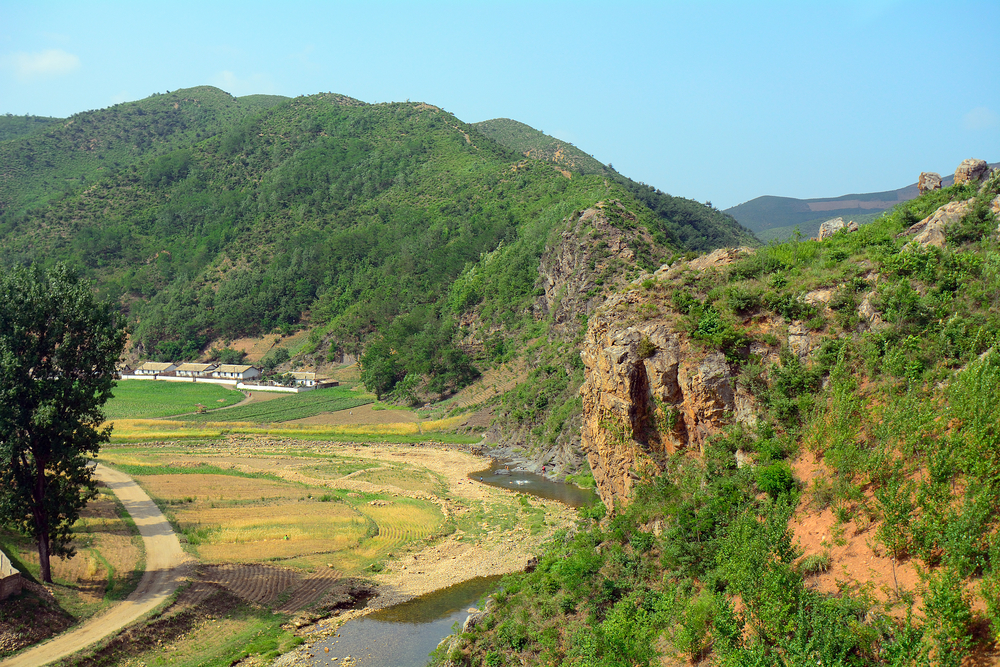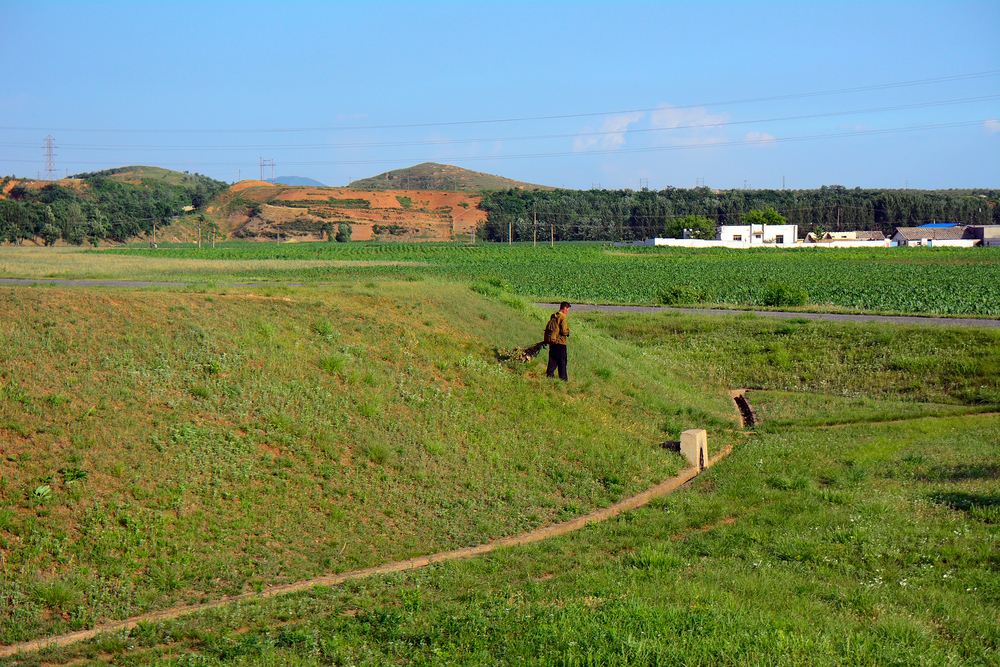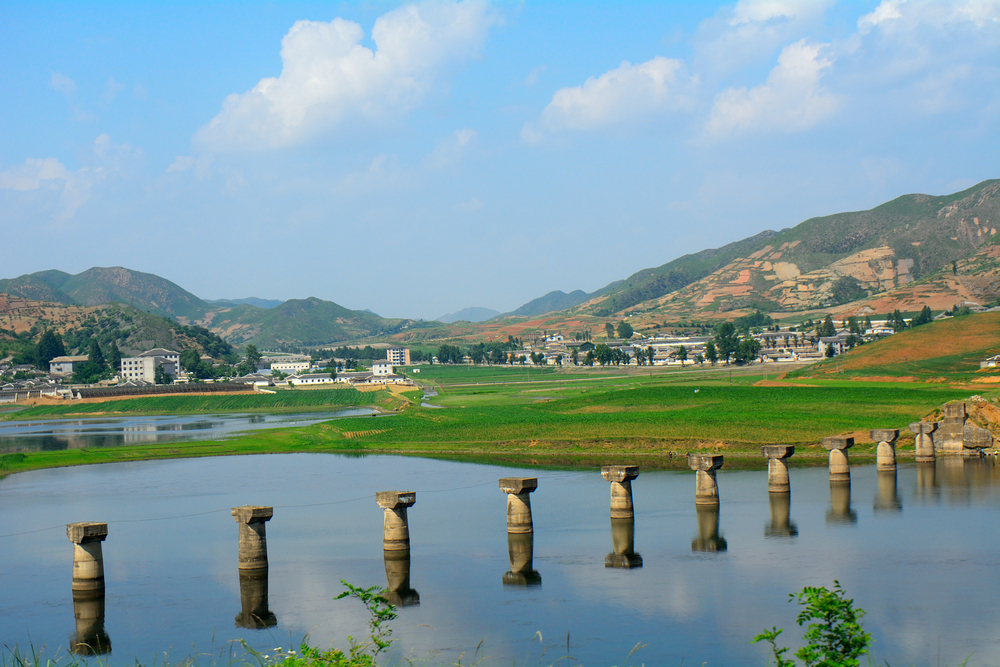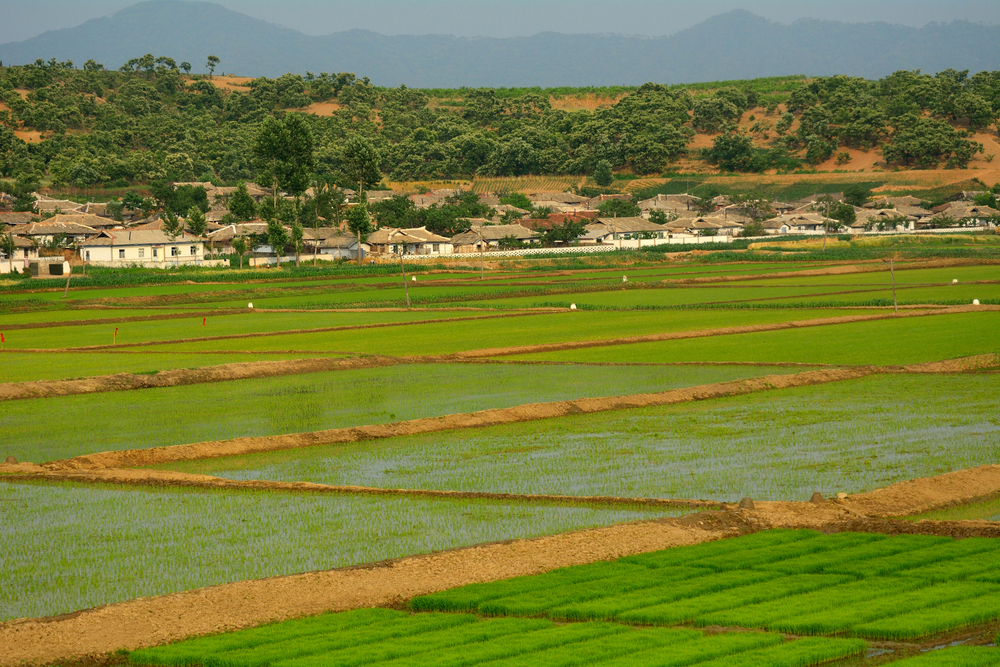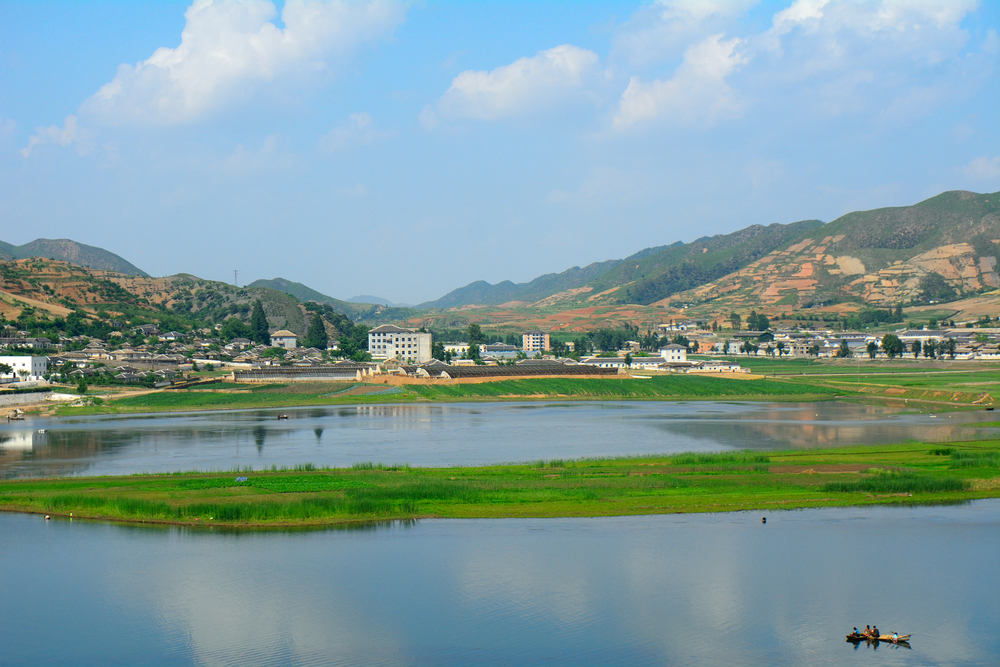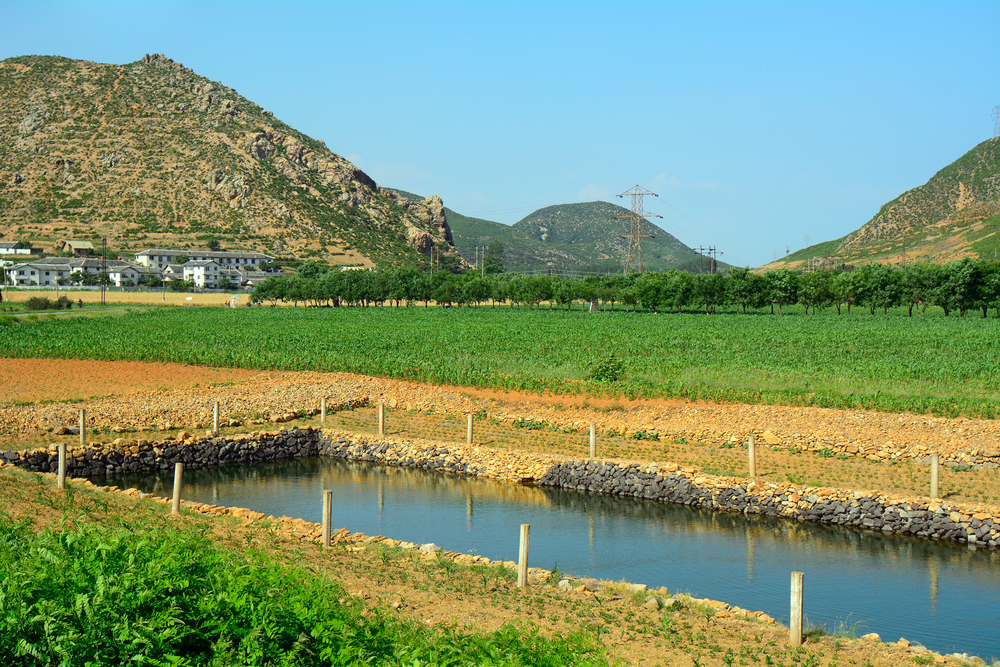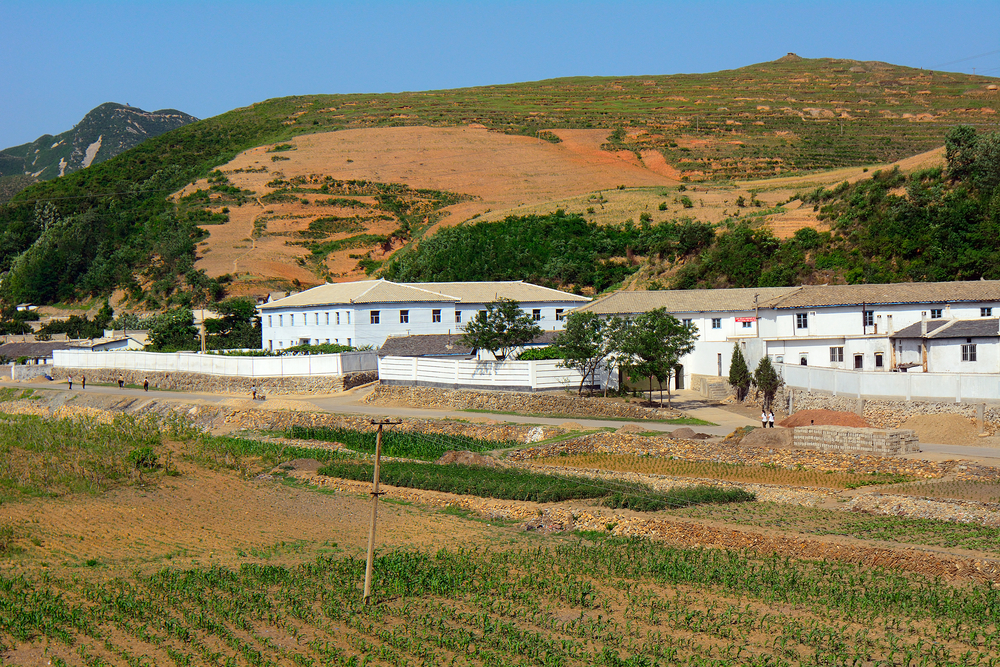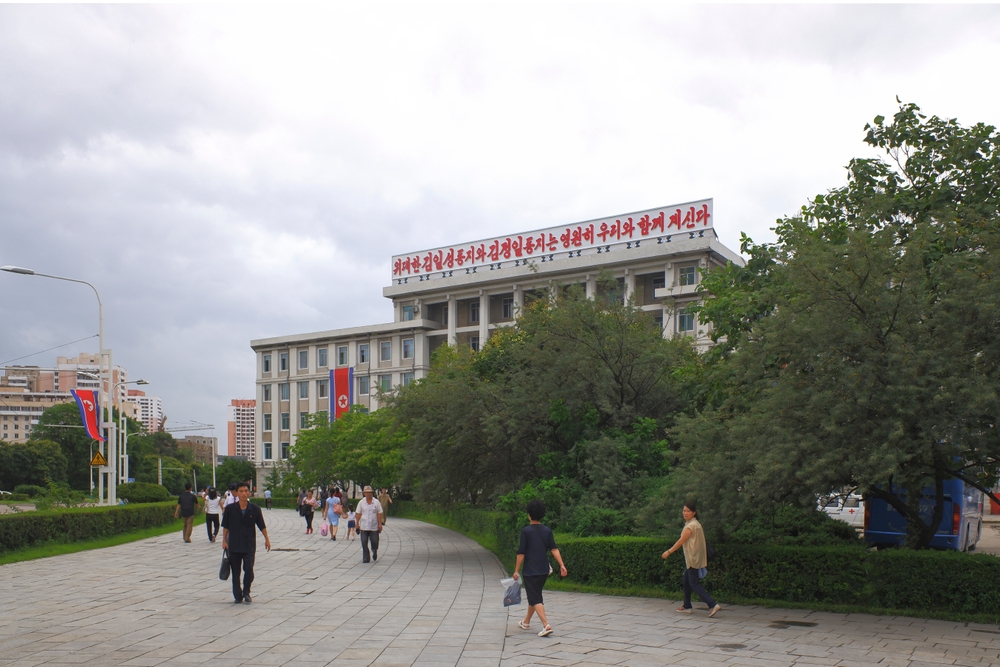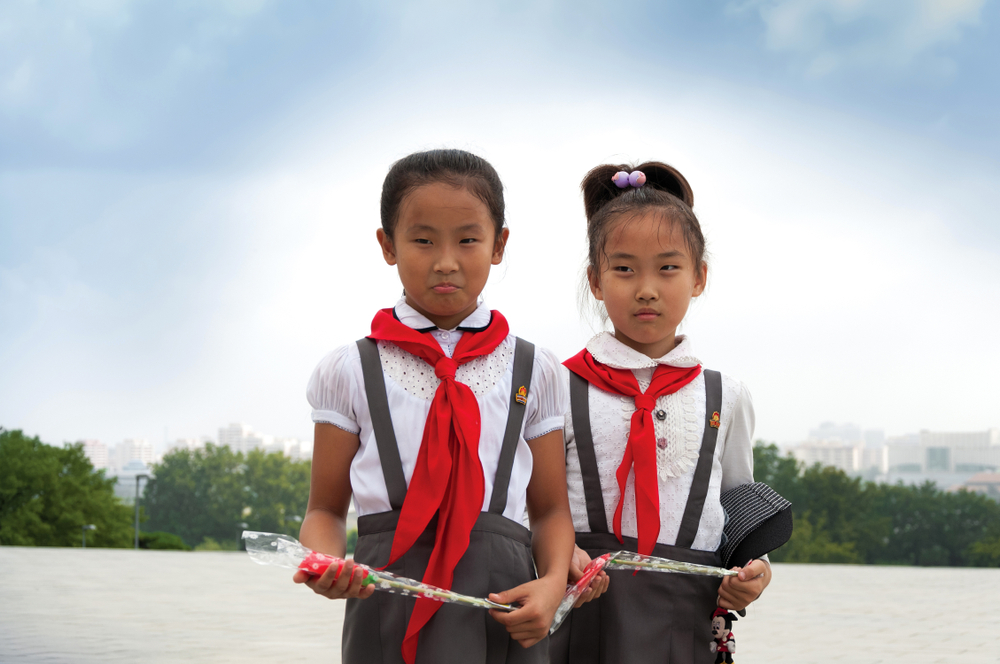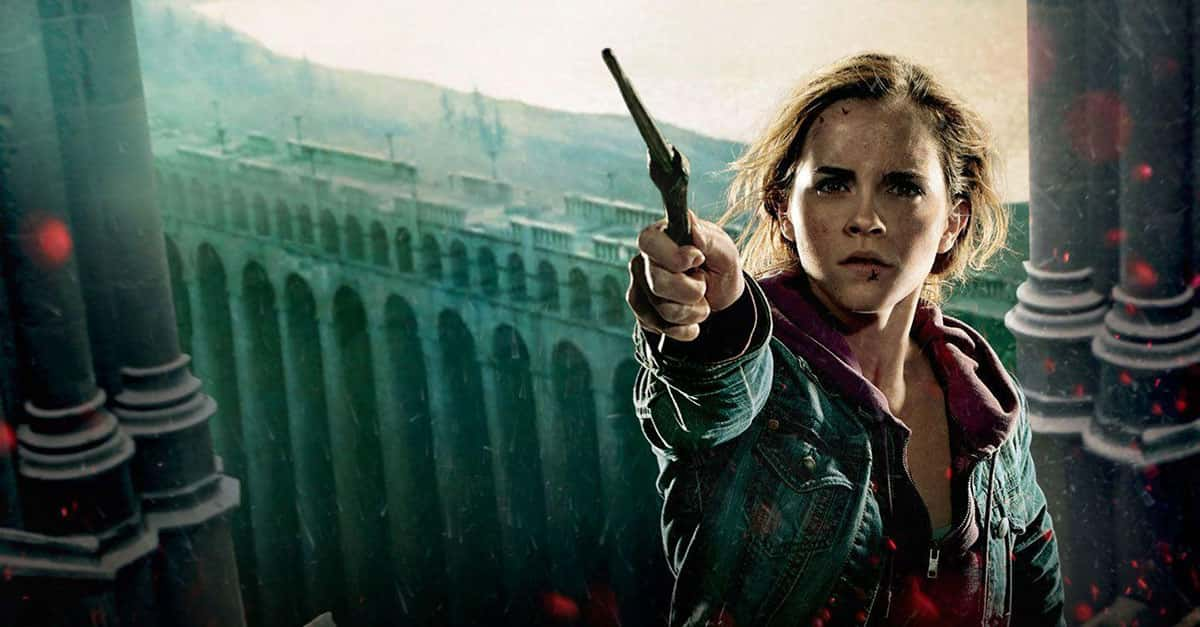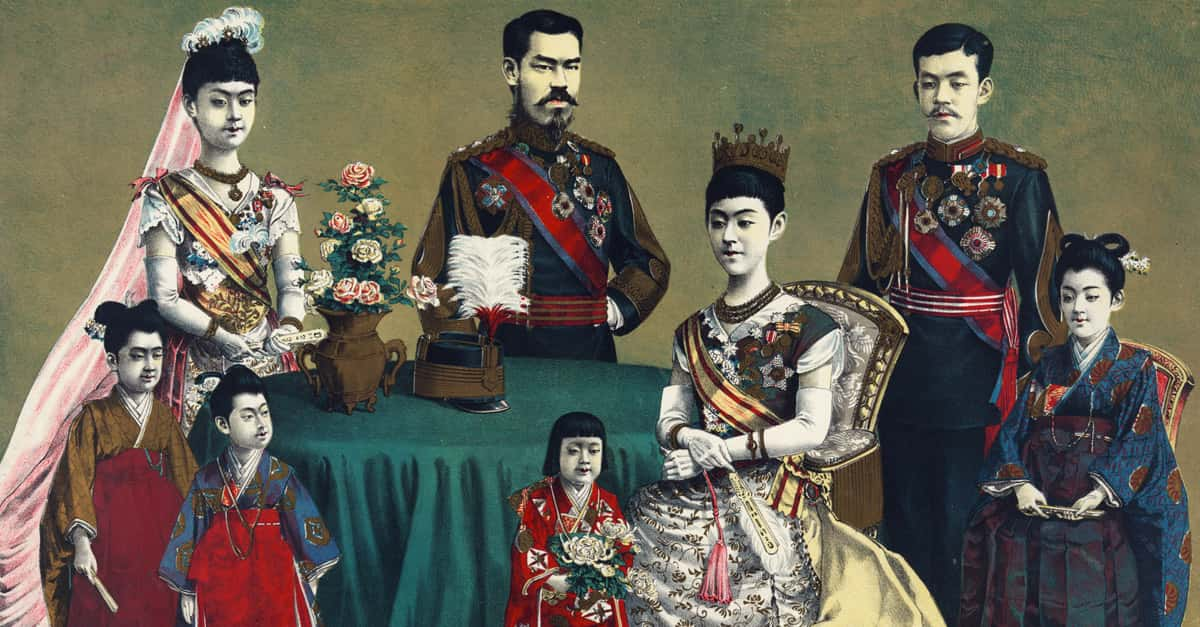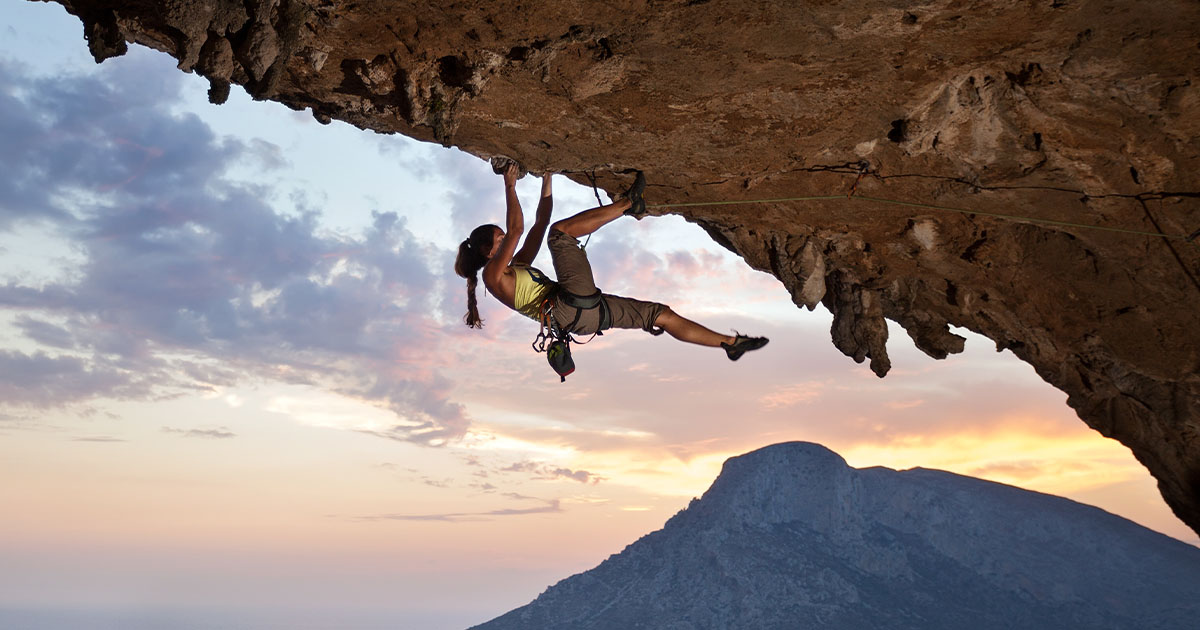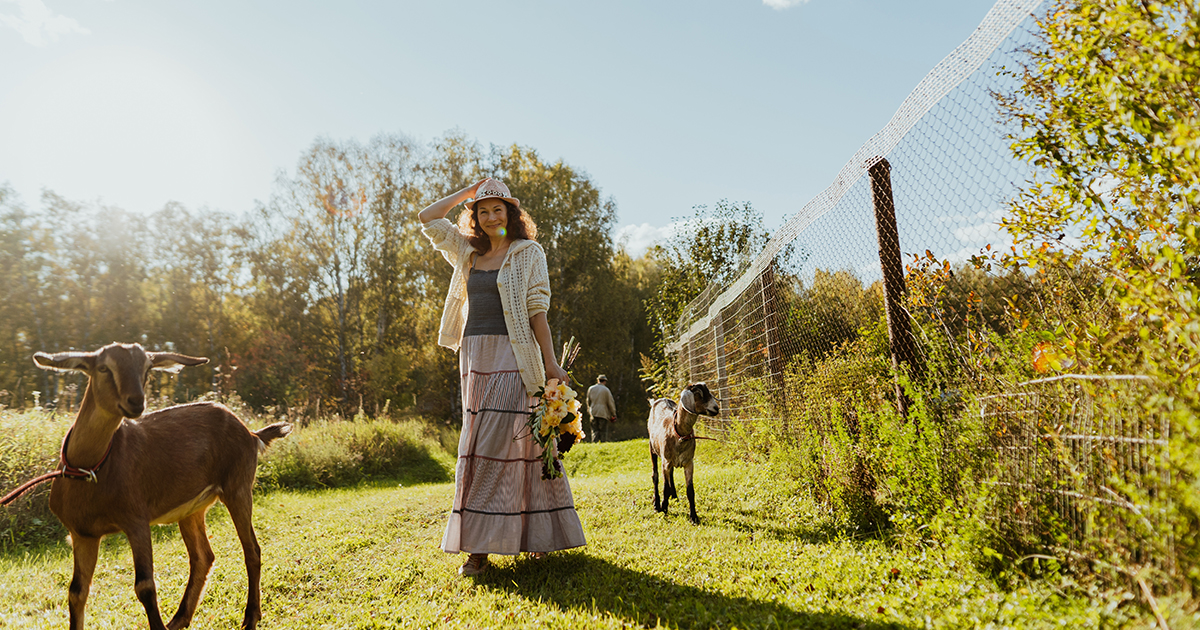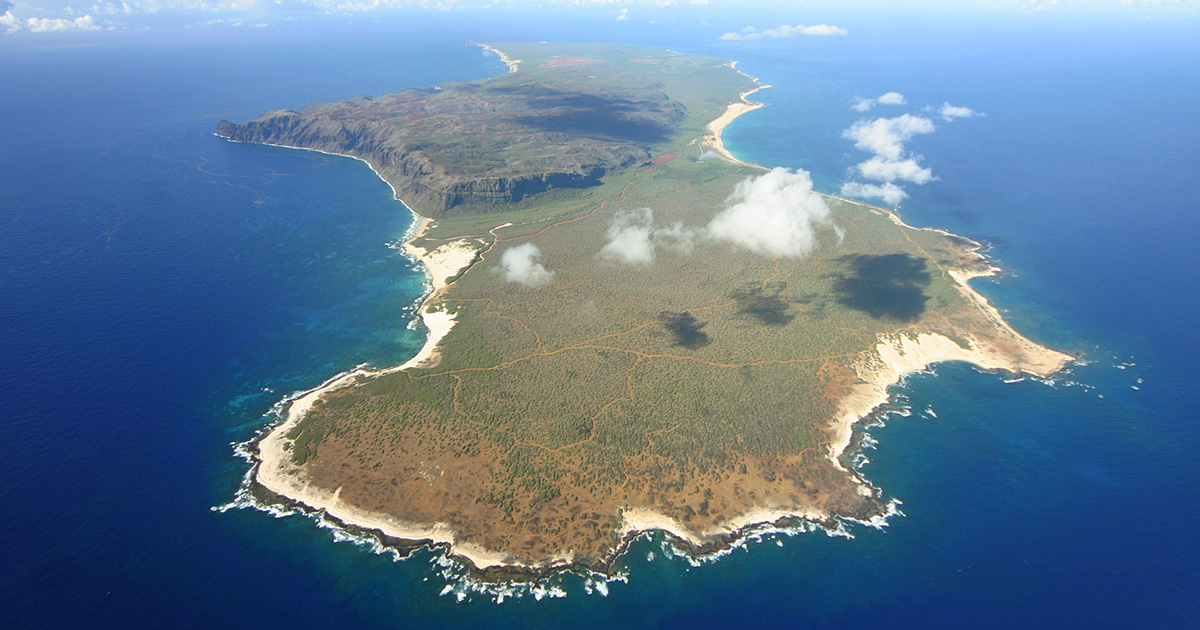Life Inside North Korea
North Korea is the world’s most secretive state, so it can be tough to get a clear picture of the daily lives of its 26 million citizens. The strict North Korean regime has stripped the people of their power. Nobody gets in, and nobody gets out.
From concentration camps to mass surveillance, every aspect of life in North Korea is monitored and unfavorable behavior is met with brutal punishment. Life in this authoritarian state is no picnic, and those who live there typically would prefer not to.
Here’s everything we know about life in North Korea.
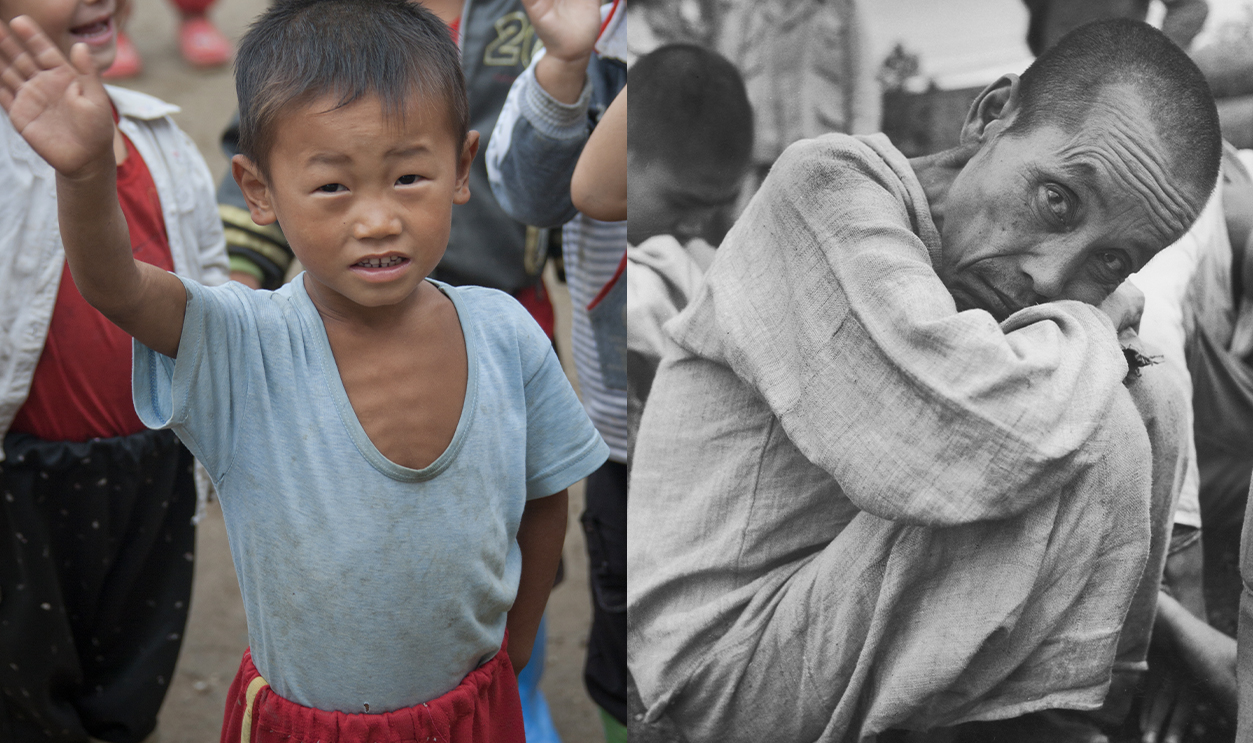
What Is The Landscape Like?
North Korea is officially the Democratic People’s Republic of Korea (DPRK), a country in East Asia.
It’s a beautiful place, actually, with about 80% of its land area covered in snow-capped mountains and lush highlands. There’s stunning waterfalls, rocky terrain, and large serene lakes.
But its unmatched beauty still doesn’t make up for the horror within its borders.
What Kind Of Government Does North Korea Have?
North Korea functions as a one-party totalitarian dictatorship—meaning there is only one political party that controls everything. However, there are actually two other minor political parties, but they’re forced to stand down. They exist only to make it look like it’s a fair process.
The ruling party is known as The Workers’ Party of Korea (WPK), a communist party led by a member of the Kim family.
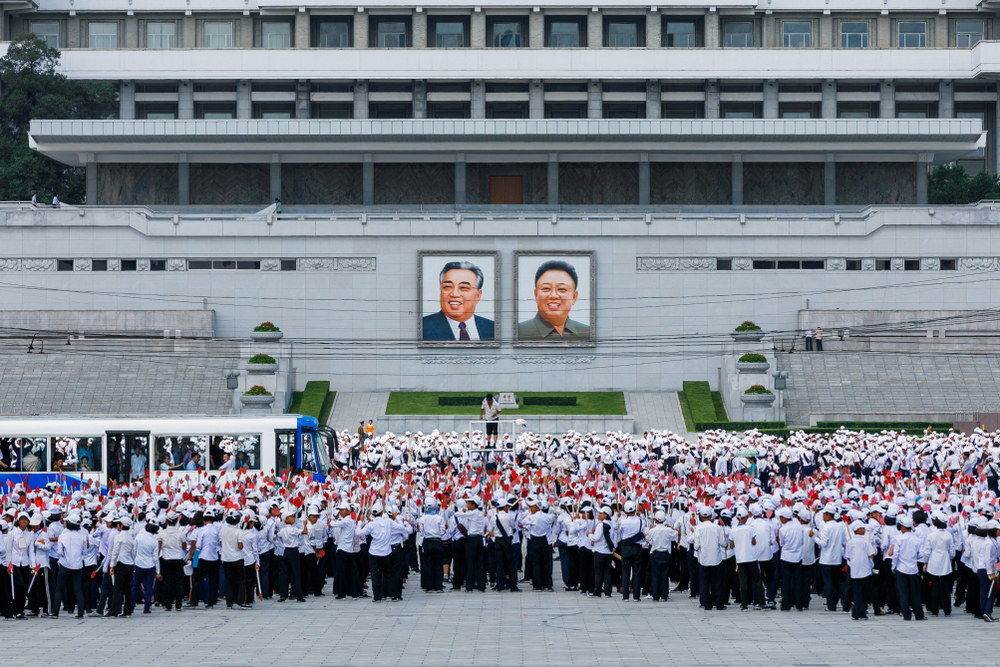 Alexander Khitrov, Shutterstock
Alexander Khitrov, Shutterstock
Who Are The Kim Family?
The Kim family, known in Korea as the Mount Paektu bloodline, is a three-generation lineage of North Korean leaders.
It started with the country’s founder and first leader, Kim II-Sung. He then passed his role on to his son, Kim Jong II, and then to his grandson, Kim Jong Un—who is the current leader.
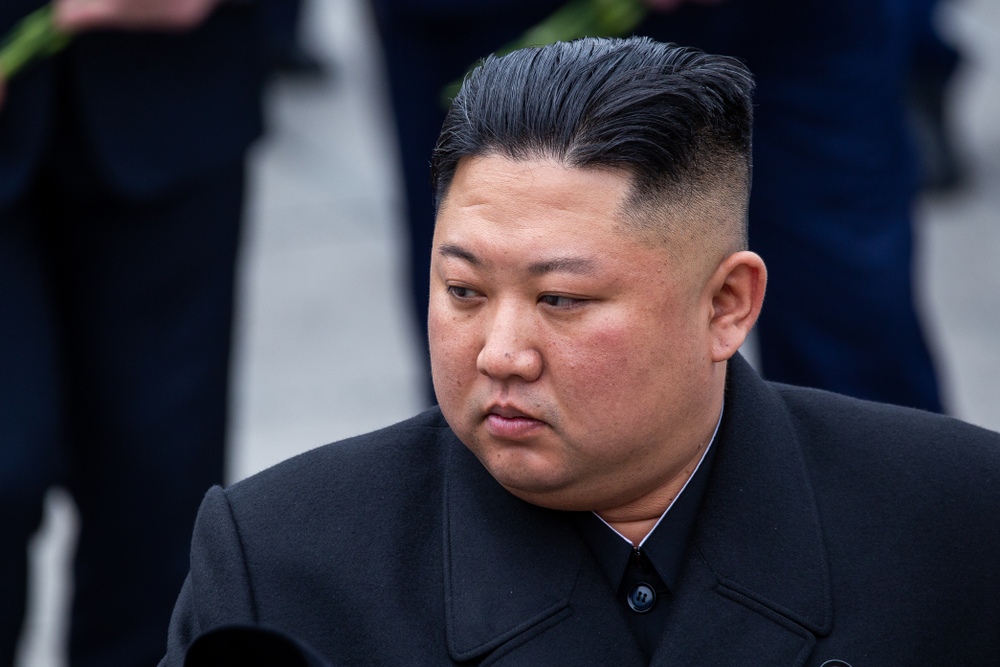 Alexander Khitrov, Shutterstock
Alexander Khitrov, Shutterstock
How Do They Stay In Control?
Since other political parties are not actually allowed to overtake the WPK, the Kim family is likely to continue ruling for generations to come.
Because of this, the nation is governed under something called Kimilsungism–Kimjongilism.
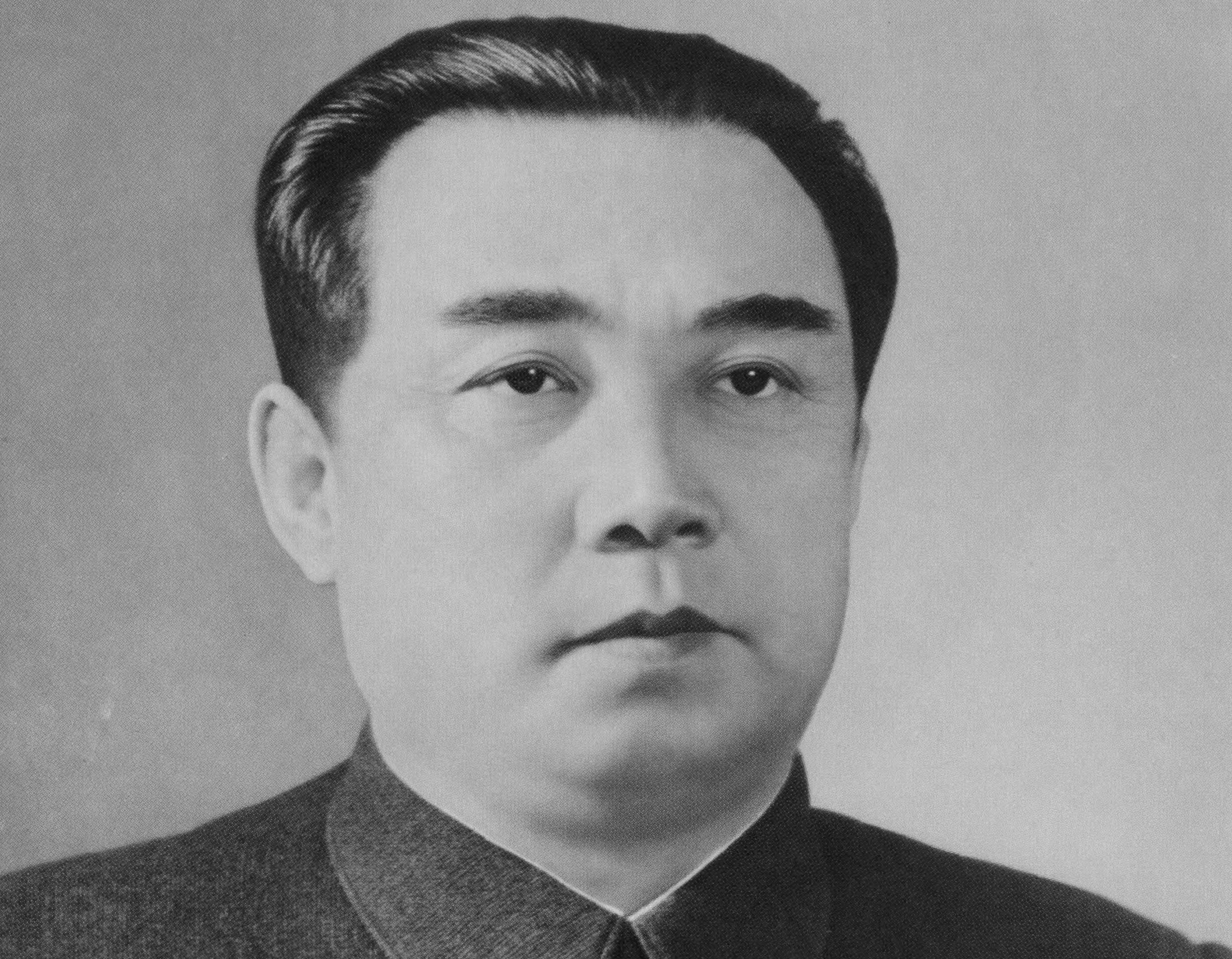 Unknown Author, Wikimedia Commons
Unknown Author, Wikimedia Commons
What Is Kimilsungism–Kimjongilism?
Kimilsungism–Kimjongilism is a proposed way of life that was made up by the former leaders, Kim II Sung and Kim Jong II.
According to its constitution, North Korea is a self-described revolutionary and socialist state “guided in its building and activities only by great Kimilsungism–Kimjongilism".
The ideas that make up Kimilsungism–Kimjongilism come from the ideology Juche.
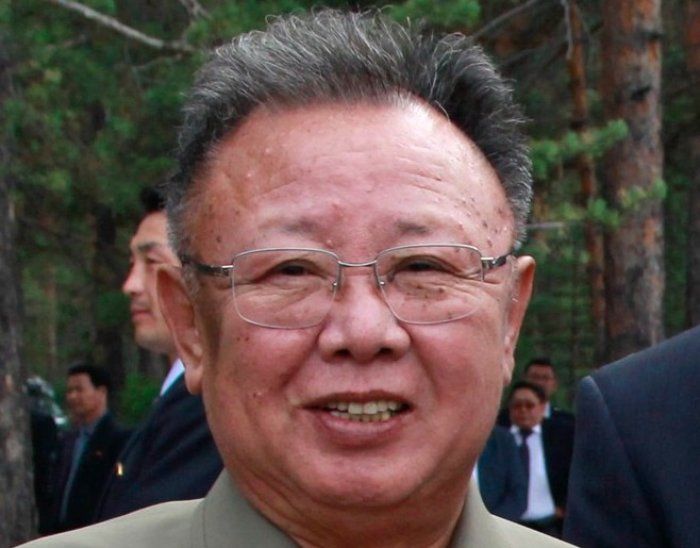 kremlin.ru, CC BY 3.0, Wikimedia Commons
kremlin.ru, CC BY 3.0, Wikimedia Commons
What Is Juche?
Juche, in North Korea, is a “man-centered ideology” in which “man is the master of everything and decides everything". It’s another thing that Kim II Sung made up.
But for the Kim family, “man” means “leader,” so basically, everything gets decided by the leader—and they uphold this using the Ten Principles.
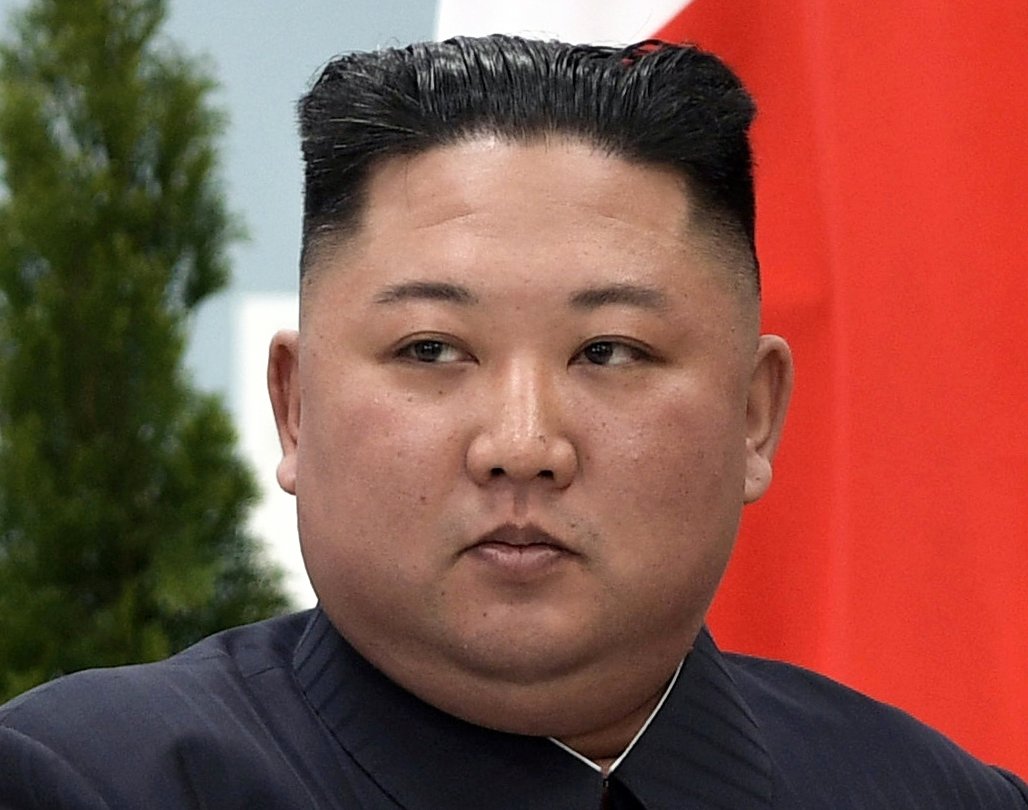 Kremlin.ru, CC BY 4.0, Wikimedia Commons
Kremlin.ru, CC BY 4.0, Wikimedia Commons
The Ten Principles
The Ten Principles for the Establishment of a Monolithic Ideological System (also known as the "Ten Principles of the One-Ideology System") is the system that tells North Korean citizens how to behave.
To be specific, these principles dictate “absolute loyalty and obedience” to their leader—and they’re just as brutal as you might imagine.
The Ten Principles
In practice, the principles serve as the supreme law of the country—and they have to be memorized by every citizen. This is so the government can ensure the “absolute loyalty” part.
There is literally no excuse for bad behavior as these principles are memorized and regularly practiced on a daily basis, since birth.
But that’s not all.
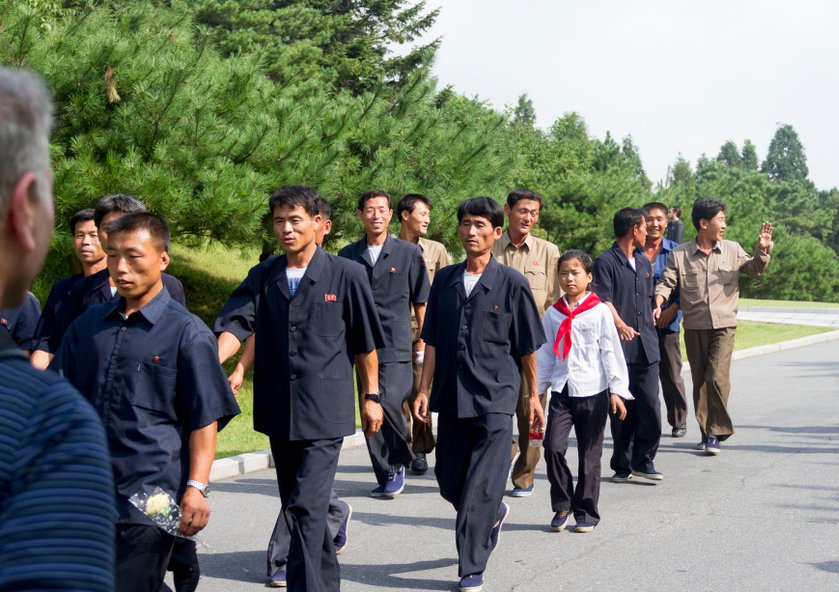 christiantimeless, Shutterstock
christiantimeless, Shutterstock
Self-Criticism Sessions
The North Korean people must exercise the Ten Principles through daily self-criticism sessions where they confess the things they did wrong. This is done in a public group setting where others will then criticize them in return.
They start by referencing an instruction from the Ten Principles, and then go on to explain how they had not lived up to it.
This starts at age eight and continues for the rest of their lives.
What Are The Ten Principles?
The principles include things about being “endlessly loyal” to the leaders, adhering to “unconditional obedience”, political awareness, work performance, and military involvement.
Regularly practicing these principles is essential in forming the foundation of the North Korean cult of personality.
The Cult Of Personality
According to Kyn-Min, a former movie director from North Korea who has since escaped, “In North Korea, one should not try to act based on what they think but instead, one should act how a person is supposed to act. For instance, when talking about America, one should always be mad".
This is a prime example of the cult of personality in North Korea.
What Is The Cult Of Personality?
A cult of personality uses various techniques (usually propaganda) to create a heroic image of a leader and encourage worshipful behavior. Advertisements in North Korea will always and only paint a pretty picture of the state and a horrific view of the outside world—and no one is allowed to believe otherwise.
What Is Not Allowed In North Korea?
The government does not allow freedom of thought, opinion, expression—or information. This means that all media is strictly controlled. Accessing phones, computers, televisions, radios, or media content that is not sanctioned by the government is illegal and considered “anti-socialist behavior” to be severely punished.
While many citizens do have cell phones these days, the content on their devices is heavily controlled—and everything they do is visible to the government.
Mass Surveillance
In North Korea, wiretapping is serious. All cell phones, computers, or devices that have abilities to communicate or share information are tapped. Not only that, microphones are being used in outdoor spaces to pick up conversations and cameras line the street corners.
It doesn’t stop there: The interiors of public buildings are also bugged—including elevators, hallways, and even bathrooms.
Seemingly, every aspect of a person's existence in North Korea is monitored.
Unlawful Products
In North Korea, some products and lifestyles are actually illegal. This ranges from haircut styles to certain product brands (like Coca-Cola and Apple). Owning a bible is also not allowed.
But there is one particular illicit product that may surprise Westerners.
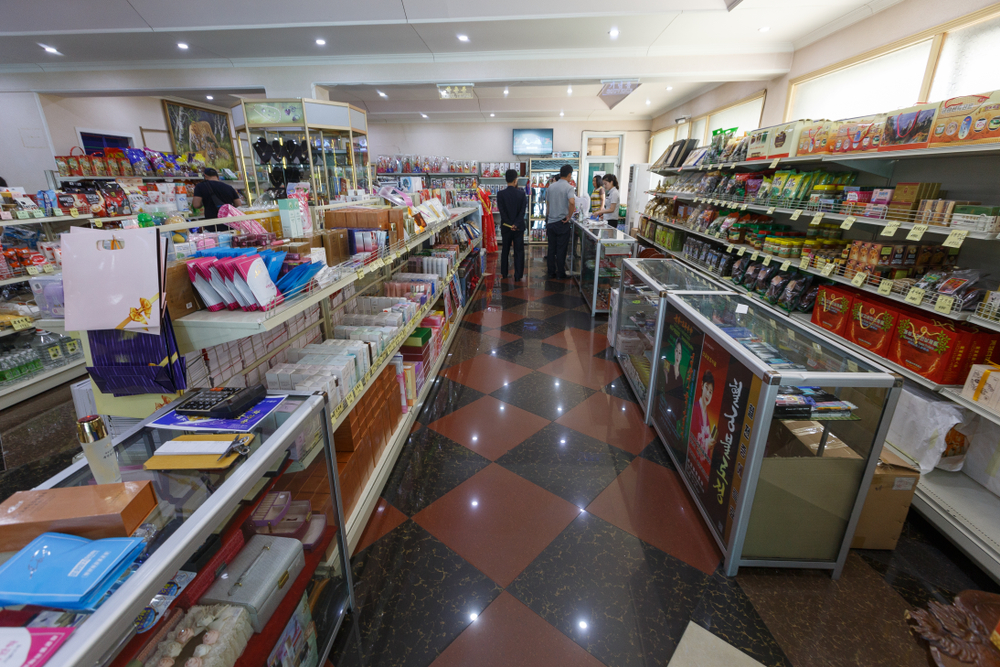 Alexander Khitrov, Shutterstock
Alexander Khitrov, Shutterstock
Unlawful Products
Sanitary pads and tampons are not available in the North Korean market. Women are expected to use old-school style reusable pads. In more recent years, feminine hygiene products have become more available—on the black market.
And that’s not all North Korean citizens use the black market for.
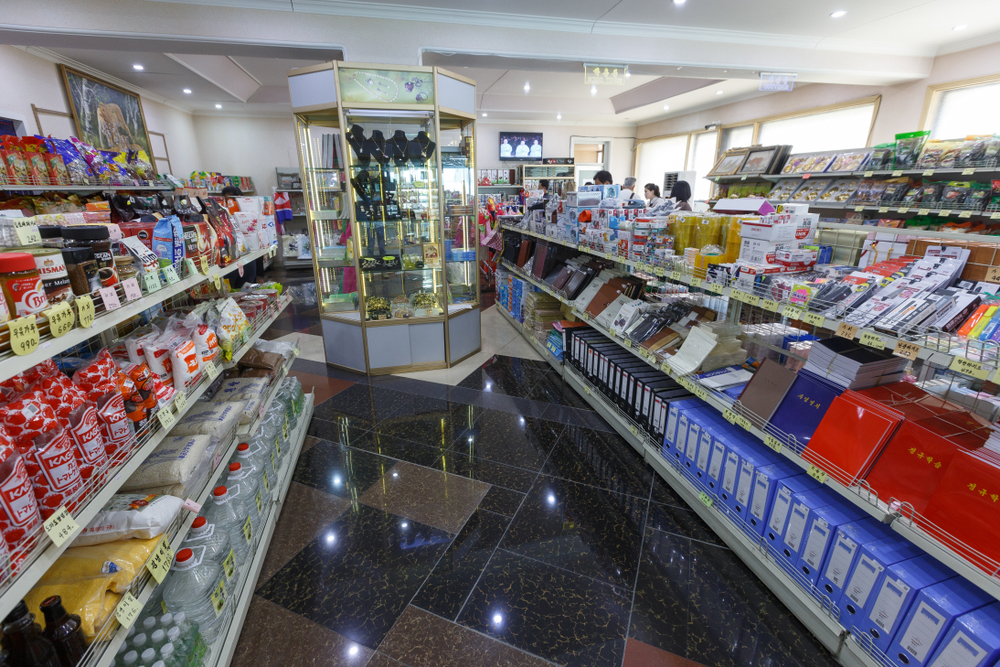 Alexander Khitrov, Shutterstock
Alexander Khitrov, Shutterstock
Birth Control In North Korea
It is said that the North Korean black market is where people have to go to buy condoms. In North Korea, all sorts of birth control measures are banned, including pregnancy terminations. Using contraceptives can earn you big time behind bars—or in the dark pits of a concentration camp.
The reason for this won’t surprise you, though.
Why Is Birth Control Banned In North Korea?
North Koreans are not only punished for using protection, they’re also encouraged to have as many as six children, or more. This is simply because of the country’s declining birth rate.
Experts say a fertility rate of 2.1 is considered the bare minimum rate necessary for a population to sustain itself over time—and in 2023, North Korea’s birth rate was a mere 1.8.
Restricting prevention is not the only way the government plans to build the population—they have another trick up their sleeve.
How Will North Korea Encourage People To Have More Children?
Just recently, Kim Jong Un introduced a set of benefits for families with three or more children, which include preferential free housing arrangements, state subsidies, free food, medicine, and household goods and educational perks for children.
While this may sound good to us, it sounds extra tempting for North Koreans.
What Is Life Like For Average North Korean Citizens?
One of North Korea’s major ongoing issues is the consistent malnutrition. Many of the country’s citizens literally starve to death. In 2021, 41% of the population were undernourished—and many of those included young children.
There are actually only two ways North Koreans can access food: the black markets, or through government-provided rations.
How Much Food Do North Koreans Get?
In North Korea, food is not in abundance and the people do not get to choose what they eat or how much they get. Aside from control, this is also because of food shortages.
According to the World Food Program, North Koreans were given a measly 400g daily per person in 2017. But two years later, that amount was lessened to 300g after consistent crop shortages.
For reference, the UN recommends 600g daily per person in order to simply stay alive.
Why Are There Food Shortages In North Korea?
To be frank, North Korea faces consistent food shortages simply because they are determined to be a nation independent from the rest of the world—even if it means their people have to starve.
Being unable to trade internationally, North Korea is unable to gain access to proper agricultural supplies and other imported goods, which then hinders their ability to produce enough food.
But that’s not all North Koreans struggle with.
Medical Care In North Korea
For the general public, medical care in North Korea is extremely expensive and hard to come by. Most people head to the black market for medicines and treatments—which is risky in all sorts of ways.
It is said that public hospitals have outdated instruments and unsafe equipment. They’re also greatly affected by something else, too.
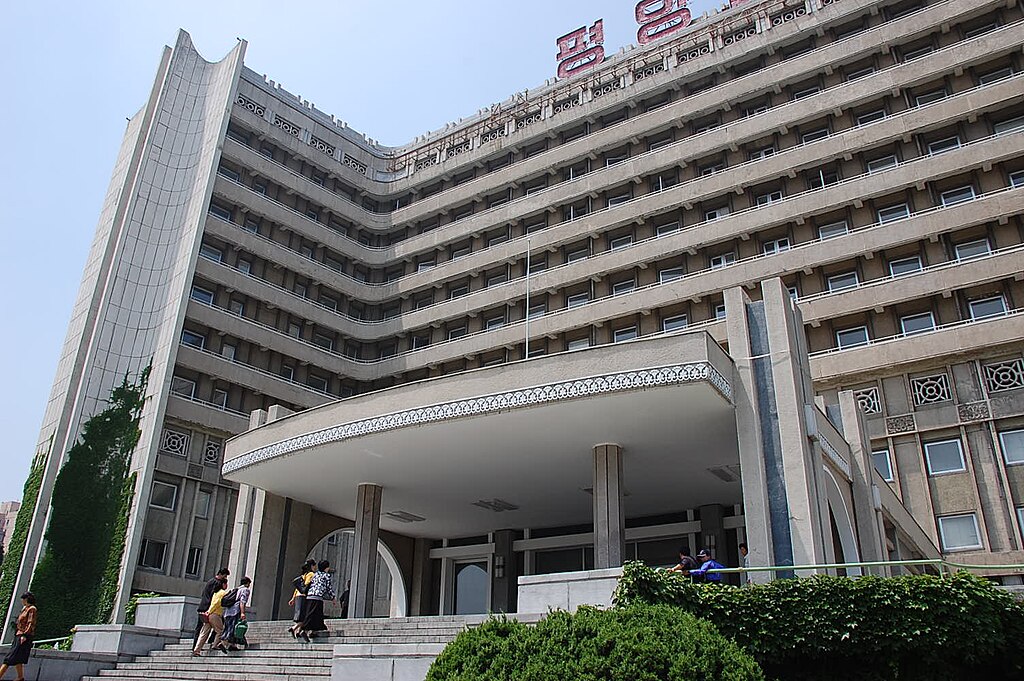 Stephan, CC BY-SA 3.0, Wikimedia Commons
Stephan, CC BY-SA 3.0, Wikimedia Commons
Power Outages In North Korea
Power outages are said to be common in North Korea—even in the elite apartments in Pyongyang. Apparently, people outside the capital burn coal to keep themselves warm during the winter—which often makes them sick with respiratory illnesses.
Desperate children sleep on train tracks that warm up after a train passes. However, many horrific accidents have occurred because of this, leaving kids dismembered.
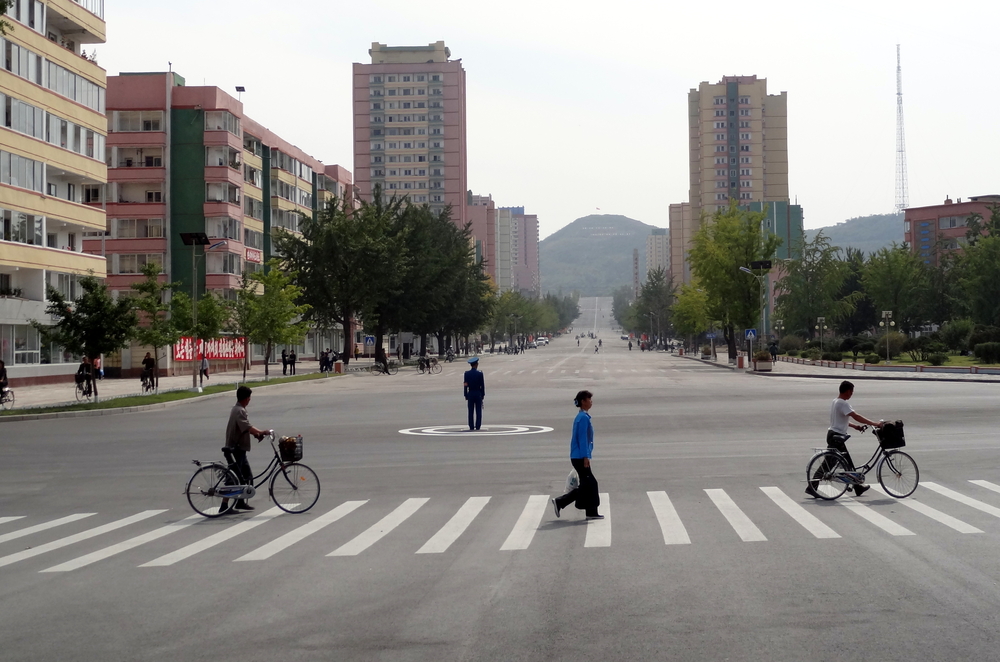 Matej Hudovernik, Shutterstock
Matej Hudovernik, Shutterstock
What Is School Like In North Korea?
Education in North Korea is universal and state-funded. Literacy rates are not reported to the outside world, so it’s tough to determine the quality of their education.
Children typically go through one year of kindergarten, five years of primary, and six years of secondary. After that, some attend college or university.
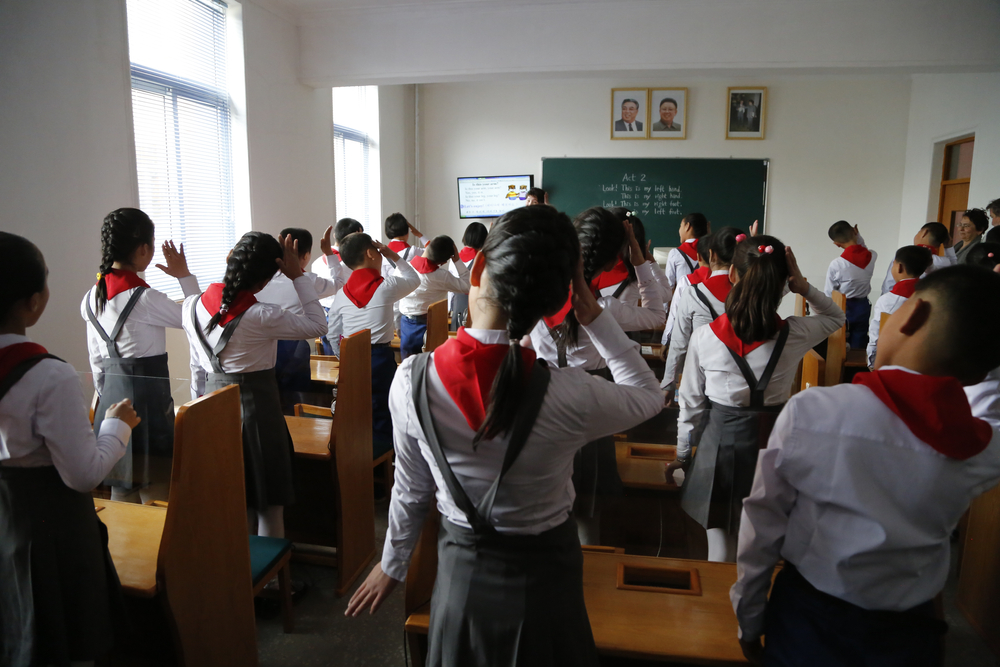 DUNYA DEGISMEDEN, Shutterstock
DUNYA DEGISMEDEN, Shutterstock
What Do Kids Learn In School In North Korea?
In primary schools, morning classes are devoted to Communist morality, revolutionary history, Korean language and arts (with revolutionary themes), and the study of the lives of their leaders.
But learning isn’t all they do in school.
Are Children Required To Work, Too?
In North Korea, children are also subjected to labor work. Schools will sometimes send children to complete short-term projects in fields or factories in return for a boost in funding.
Sometimes, the children are subjected to long hours in hazardous conditions—much like their parents.
What Is Working Like In North Korea?
North Koreans are not free to choose their own jobs, the state does that for them. And they do so by determining a person’s worth first.
In the past, the most crucial factor was songbun, or personal background. People with good songbun—or people from good families—would be given advantages in job placement.
But today, they use a system that organizes people based on something else.
What Is The Work Unit System?
The Work Unit (Inminban) System is used to organize citizens into groups based on their loyalty to the state. Each group is assigned jobs. This categorization can affect job opportunities and earning potential, as some units may be given more lucrative assignments than others, depending on how loyal they have been over the years.
Even still, the country’s average wages are nothing to get excited about.
How Much Money Do North Koreans Make?
The average North Korean salary is said to be relatively low by international standards, and far less than needed to cover basic living needs.
It is believed that average wages in North Korea are between 5,000 and 10,000 North Korean won (KPW) per month, which translates to roughly $1-3 USD.
Some elite jobs may pay a bit more, but are hard to get.
What Are The Best Jobs?
The highest-paying jobs in North Korea include: government officials, military officers, diplomats, medical professionals, scientists and engineers, and elite performers (state-approved, of course).
But cash isn’t the only form of payment in North Korea.
How Do People Get Paid?
In a lot of “good jobs” in North Korea, the people are paid low wages but given some non-monetary benefits, such as access to food, housing, healthcare, and education.
But this doesn’t work out any better. One defector said, “They gave us a quota every day. If we didn’t meet the quota, we didn’t get our food ration, so we didn’t get paid that day".
As well, anyone who gets an actual paycheck should expect it to fluctuate, even when their hours and official wage do not change.
Why Do Their Wages Change?
Because of the inconsistent economy, the North Korean government will decrease wages without notice. When this happens, people’s official wages do not change, nor do their hours.
Basically, employment contracts don’t mean much. The government will pay whatever they can afford at the time.
And sometimes, people are required to work without pay.
What Is Dolgyeokdae?
Dolgyeokdae is “voluntary community work”—except that it’s actually not voluntary at all. The government can call upon citizens at any time to drop everything and participate in various infrastructure projects and agriculture support.
There is no compensation in any form. In fact, it is considered a civic duty, and the people are to be grateful for the opportunity.
Who Has To Join The Military?
Speaking of civic duty, North Koreans are required to join the military at the age of 17. Men are universally conscripted while women undergo selective conscription. They must serve for a minimum of 10 years, during which they are isolated from their families.
The only people exempt from the military are children of the political elites and those with bad songbun (particularly disloyal).
What Is Their Military Like?
The Korean People’s Army (KPA) is one of the largest military institutions in the world. With an active duty army consisting of 4.9% of its population, North Korea maintains the fourth-largest active military force in the world behind China, India, and the United States.
The KPA has about 1,280,000 active soldiers and 6,300,000 reserve and paramilitary troops. Approximately one in every 25 citizens is an enlisted soldier.
But manpower isn’t the only thing they have.
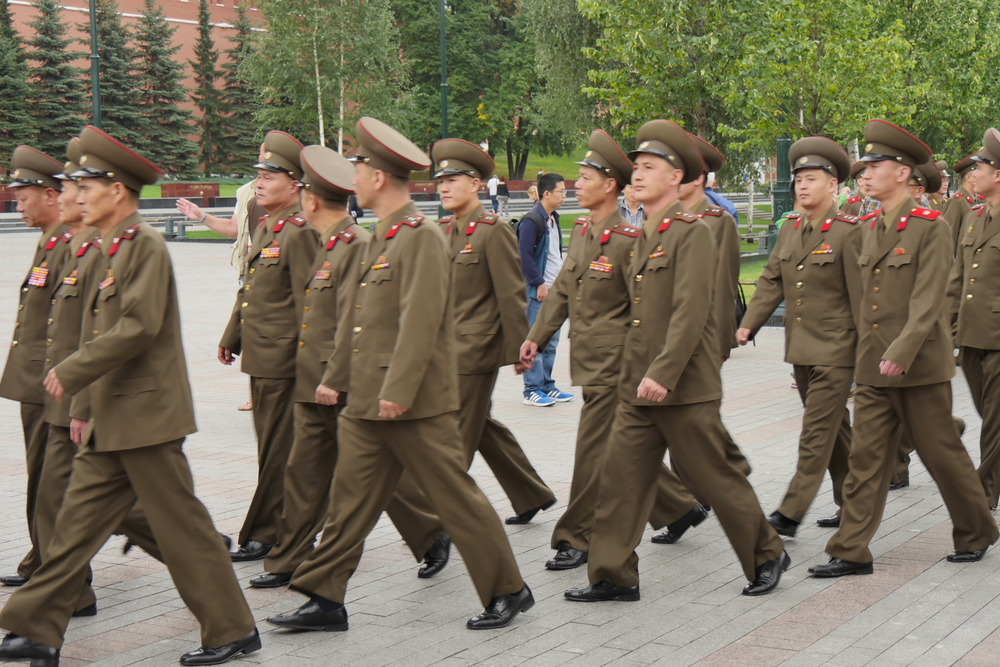 Flight Video and Photo, Shutterstock
Flight Video and Photo, Shutterstock
Does North Korea Have Nuclear Weapons?
North Korea is a nuclear-armed state—but the nature and strength of their arsenal is uncertain. As of September 2023, estimates of its size ranged between 40 and 116 assembled nuclear warheads.
They also apparently have a stockpile of chemical and biological weapons, including anthrax, smallpox, and cholera.
How Are Their Weapons Controlled?
The UN has placed numerous sanctions on North Korea over the years, including prohibiting the sale of weapons to North Korea by other states—which has led North Korea to take a more innovative approach.
North Korea’s Asymmetric Warfare
Since no one is allowed to sell weapons to North Korea, the country has deployed a wide range of asymmetric warfare technologies instead. These include: anti-personnel blinding lasers, GPS jammers, midget submarines and human torpedoes, stealth paint, and cyberwarfare units.
The country allocates a huge amount of money to their military, ensuring they never lose their power—mostly over their citizens.
Human Rights In North Korea
It’s no surprise that human rights in North Korea is a hot topic. The UN is absolutely beside themselves, stating “the gravity, scale, and nature of these violations reveal a state that does not have any parallel in the contemporary world".
North Koreans have been referred to as “some of the world's most brutalized people” by Human Rights Watch, because of the severe restrictions placed on their freedoms.
In fact, North Korea is ranked highest in the world in terms of the percentage of population in modern slavery.
Modern Slavery In North Korea
North Korea is the only country in the world that has not explicitly criminalized any form of modern slavery—but this is because they support it.
The country has over a million people in modern slavery, equating to 10.4% of the population.
That’s not the only awful thing they participate in, though.
Human Trafficking In North Korea
North Korea has allegedly trafficked thousands of its own citizens as forced laborers to other countries where most of their earnings are pocketed by the Korean government. And sometimes, they trade their people for goods.
The regime has no intention of changing this tactic and sees nothing wrong with it.
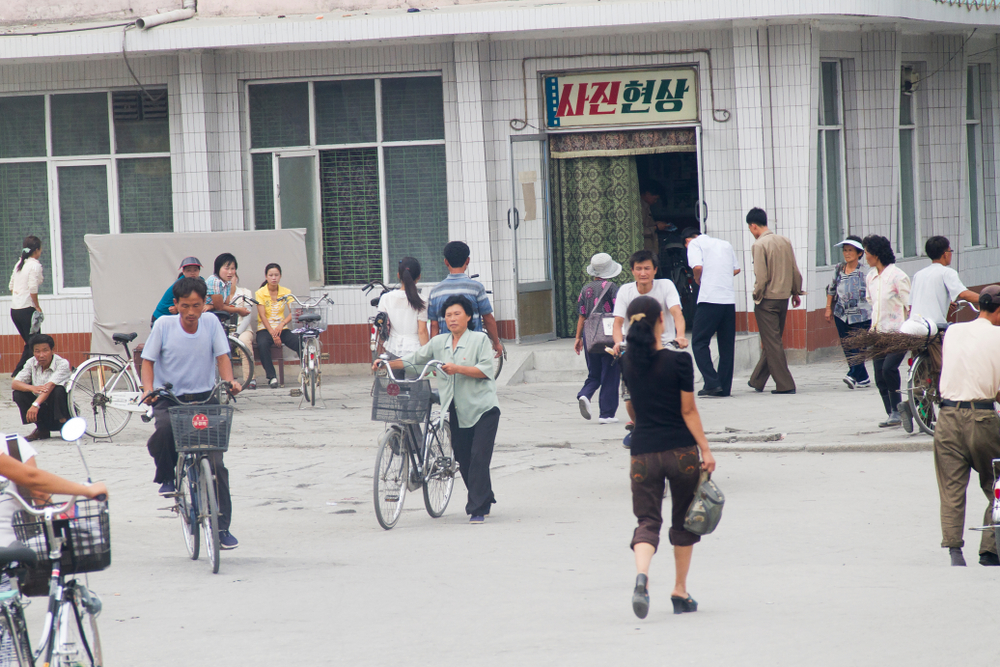 christiantimeless, Shutterstock
christiantimeless, Shutterstock
Are North Koreans Allowed To Travel?
Citizens in North Korea are generally not permitted to leave the country at will. But that doesn’t mean it’s impossible.
Some citizens can receive special permission to travel, though usually it is only approved for work, business, trade, or study purposes. However, this is not open to everyone, and it is not an easy process to go through.
Why Are They Not Allowed To Travel?
North Koreans are not allowed to travel because the regime fears it to be an escape attempt. If someone wants to leave the country, they first have to prove their intentions and basically promise to return.
There is a great fear that North Koreans will discover the free world and not want to go back home—understandably so.
 Chanilim714, CC BY-SA 3.0, Wikimedia Commons
Chanilim714, CC BY-SA 3.0, Wikimedia Commons
Do North Koreans Know About The Rest Of The World?
Average North Koreans (excluding the elite) have limited knowledge about the outside world. The media within North Korea is strictly controlled and does not allow global news or radio stations. All media is pre-tuned to North Korean stations only.
Because of this, they have limited ways of learning anything other than what the government wants them to know.
However, that doesn’t mean they don’t find other ways.
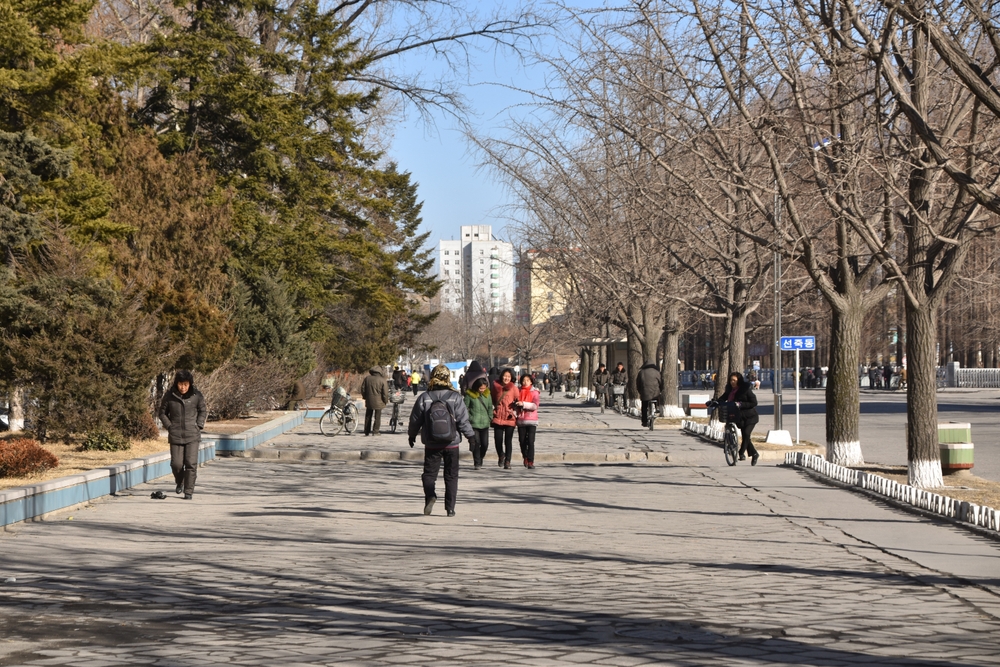 Stephen A. Rohan, Shutterstock
Stephen A. Rohan, Shutterstock
Smuggling Radios
Many North Koreans find ways to smuggle goods across the border with China. And one of the things they like to get are radios that can tune in to international stations.
This is super risky though because tuning into foreign broadcasts is a serious offense that will land you in the political camps. But it’s literally the only way for them to learn about the world.
Censorship In North Korea
Censorship is a form of media monopoly where the government oversees all media content in order to maintain obedience.
North Korea has some of the most extreme censorship in the world, with the government able to take strict control over all communications.
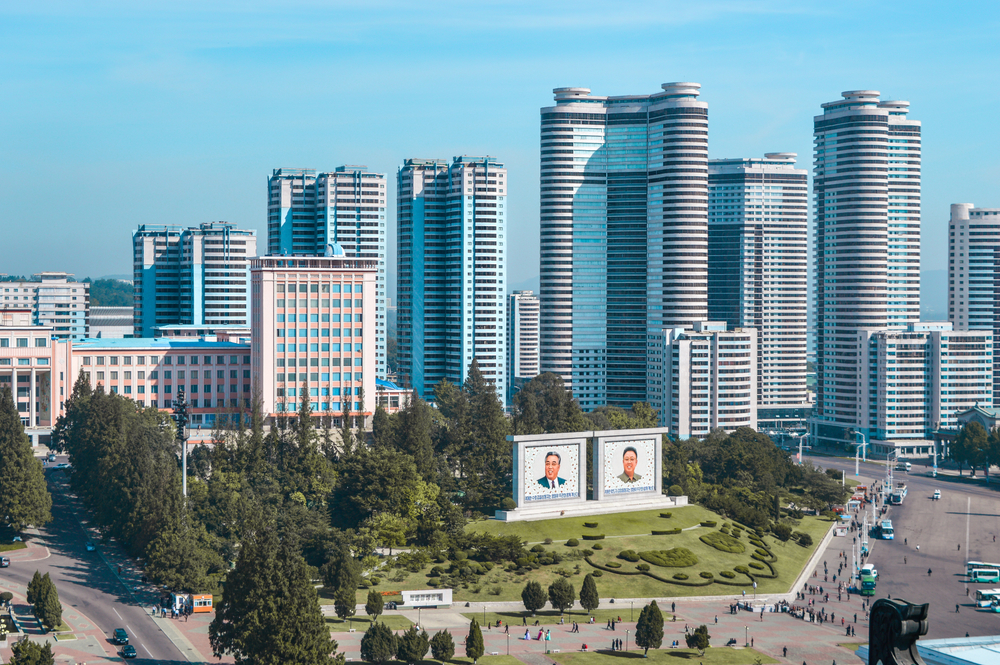 Caminhos me Levem, Shutterstock
Caminhos me Levem, Shutterstock
Media In North Korea
North Korean leaders believe that their rules and censorship system are necessary in order to keep people under control, “to prevent the rise of criticism about the government".
Photojournalism is heavily regulated. TVs and other media devices bought within the country are preset to receive only the government frequencies. They are sealed to prevent tampering, must be registered, and are subjected to spontaneous inspections.
Do They Have Access To The Internet?
The general population of North Korea does not have internet access. Only certain internet cafes or hotels designed for foreign tourists are given access to the World Wide Web.
Instead, the government provides the people with Kwangmyong—an intranet that circulates within their borders only, and controls what can be searched and what can be found.
Propaganda In North Korea
Not only do they have limited access to devices, the content they do get is specifically made for them.
Songs played on radios are based on praising communism, and TV stations are controlled by the Propaganda and Agitation Department, and only include four channels with limited programs.
All and any media, including print, only includes North Korean content, promoting their government as top tier.
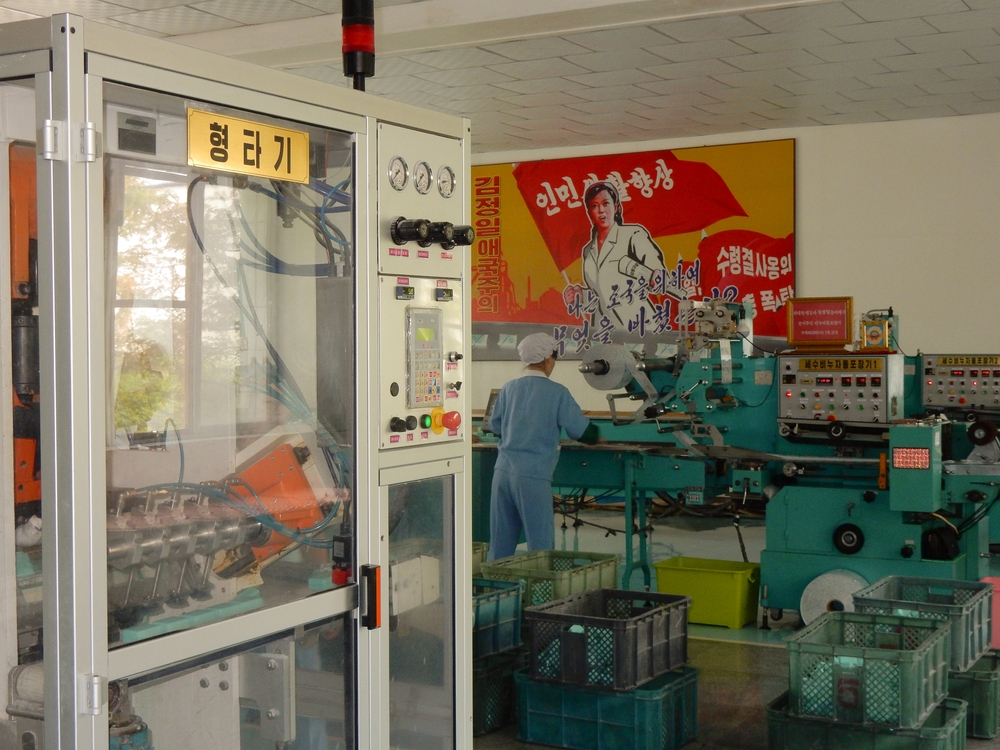 Stephen A. Rohan, Shutterstock
Stephen A. Rohan, Shutterstock
Do They Have Social Media?
Social media has been on the rise in recent years, with several new socials entering the chat. However, none of them are allowed in North Korea.
As of 2016, all social media platforms are officially banned in the country. Though, they were never actually allowed to begin with.
North Korea’s ban list is quite extensive, and technology isn’t the only thing their citizens miss out on.
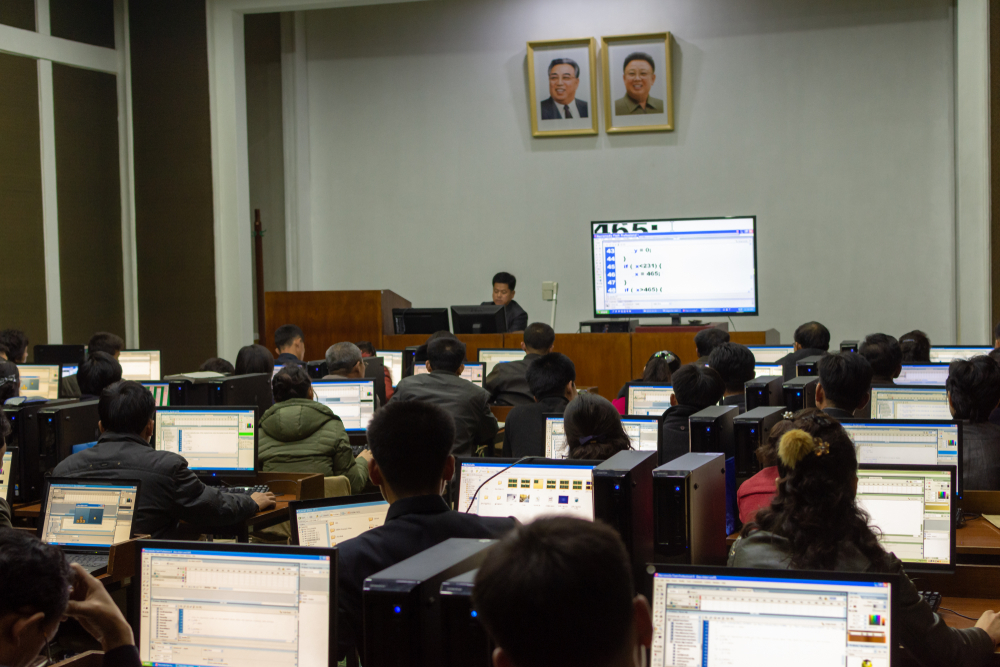 Mirko Kuzmanovic, Shutterstock
Mirko Kuzmanovic, Shutterstock
What Clothing Is Banned In North Korea?
North Korea also controls what their citizens wear. Certain items, like jeans, flashy or brightly colored materials, high heels, short skirts, and clothing with logos are all banned. Altering clothing is also a serious offense.
Focus is on subdued and uniform attire. Colors and embellishments are restricted to prevent any form of individual expression that may deviate from state-approved norms.
Is Smoking Allowed In North Korea?
Smoking is considered a common social norm in America, and it’s actually a common social norm in North Korea, too—but only for men.
While it’s acceptable for men, it is a social taboo for women. It is considered even more disgraceful than heavy drinking.
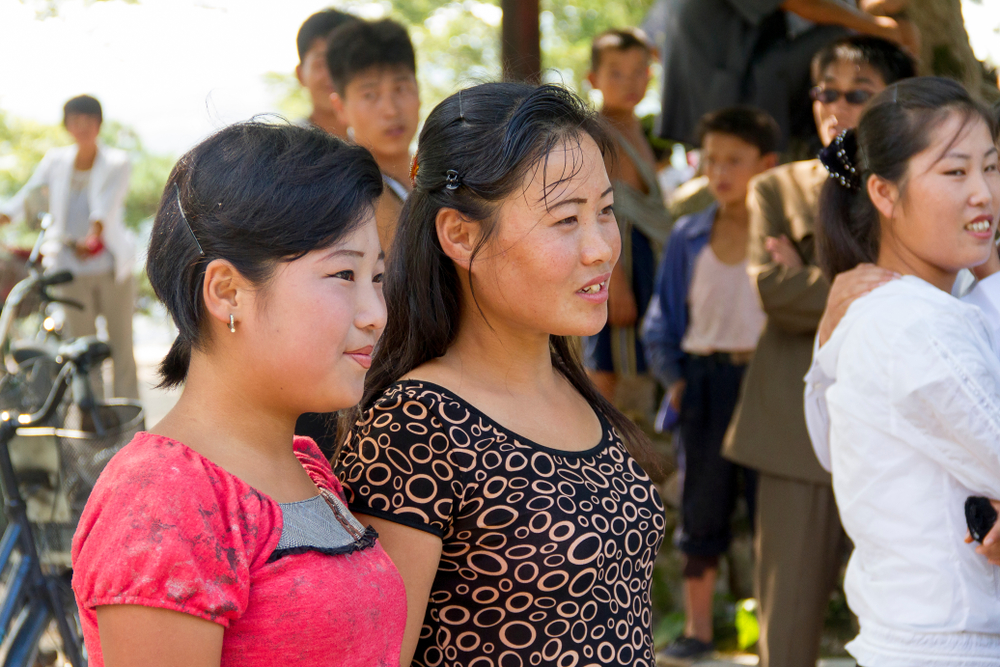 christiantimeless, Shutterstock
christiantimeless, Shutterstock
What Religion Is Practiced In North Korea?
As mentioned previously, North Koreans caught with a bible are severely punished. This is because North Korea is an atheist state. There are no known official religions, but its constitution does state a freedom to exercise religion—as long as it does not introduce foreign forces, harm the state, or harm the social order.
However, what the government says and what they actually do are two very different things.
Christianity In North Korea
According to Jun-Seok, a former North Korean border guard, “The thing that North Korea fears the most is not South Korea or the United States, but religion, especially Christianity.
Today, North Korea won’t openly admit their stance against religion, but nearly 65% of citizens do not practice a religion of any kind.
Who Are North Koreans Taught To Hate?
North Koreans are taught to hate the external world, especially the United States and South Korea as their “main enemies".
In fact, Kyn-Min, a former North Korean movie director who escaped the regime in 1999 said, “In North Korea, when talking about America, one should always be mad".
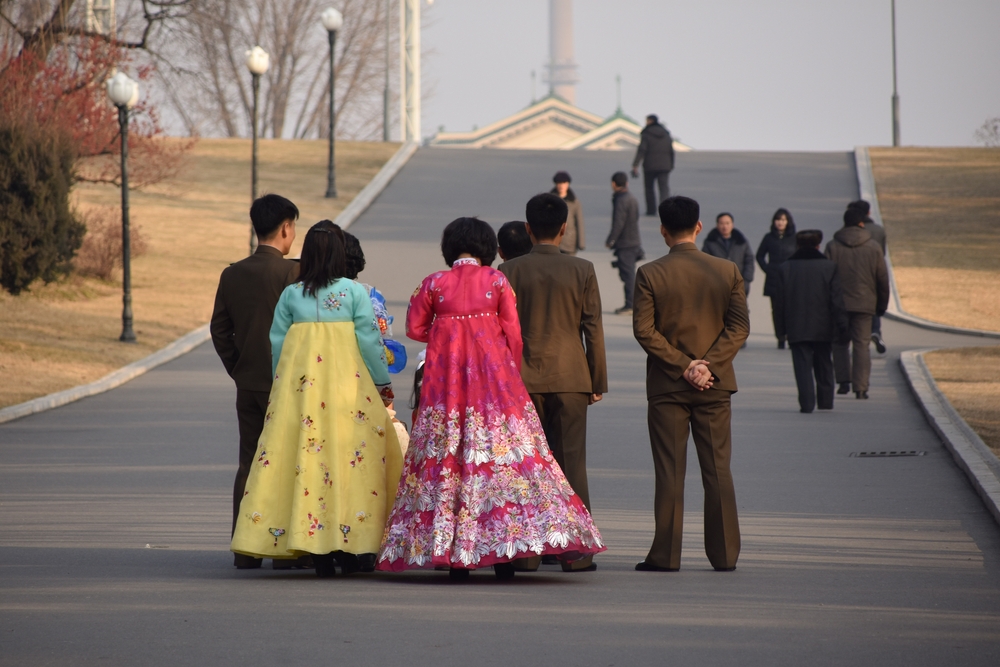 Stephen A. Rohan, Shutterstock
Stephen A. Rohan, Shutterstock
Why Don’t More People Escape?
You may wonder why people who are granted permission to travel actually return home. This is because usually, the people who are allowed to leave are so brainwashed that they are actually loyal to their government—specifically the Kim family, who they see as “protectors".
But, that’s not the only reason.
Taking Family Hostage
When a North Korean leaves the country for work purposes, they are not allowed to take any family members with them. Instead, those family members are left behind, sort of like hostages, and used as an incentive for the person to return.
Oftentimes, people without close family members are not granted permission to leave, as there is less reason for them to come back.
Even still, some people manage to break free.
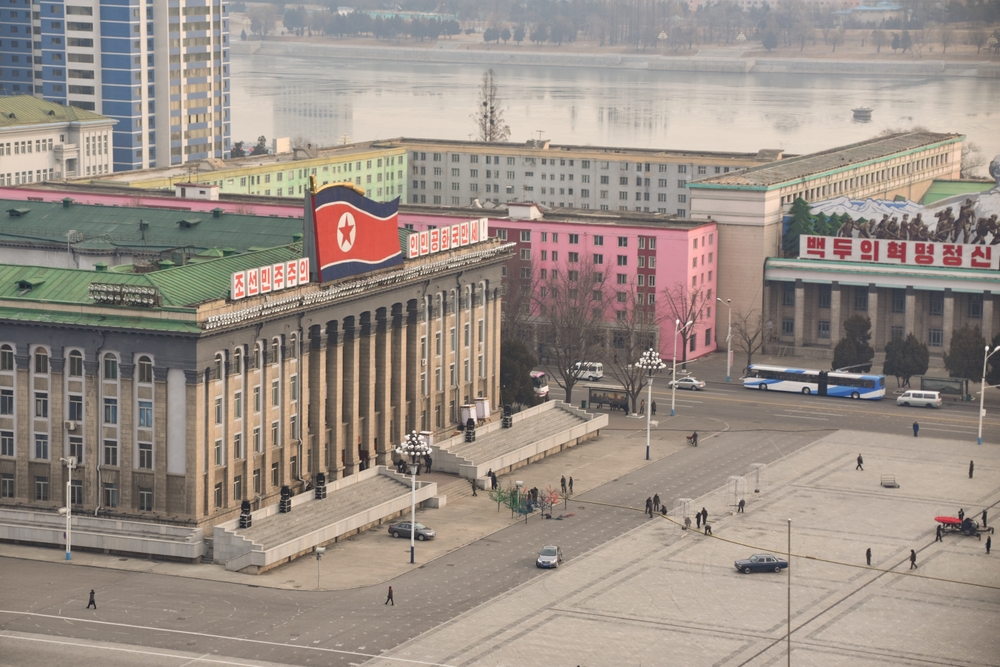 Stephen A. Rohan, Shutterstock
Stephen A. Rohan, Shutterstock
How Does Anyone Escape?
Defectors (those who escape) commonly cross the China-North Korea border. But, it’s not easy. In recent years, North Korea has beefed up the border patrol with stricter inspections and searches.
But once defectors have made it to safe land, the journey is still not over.
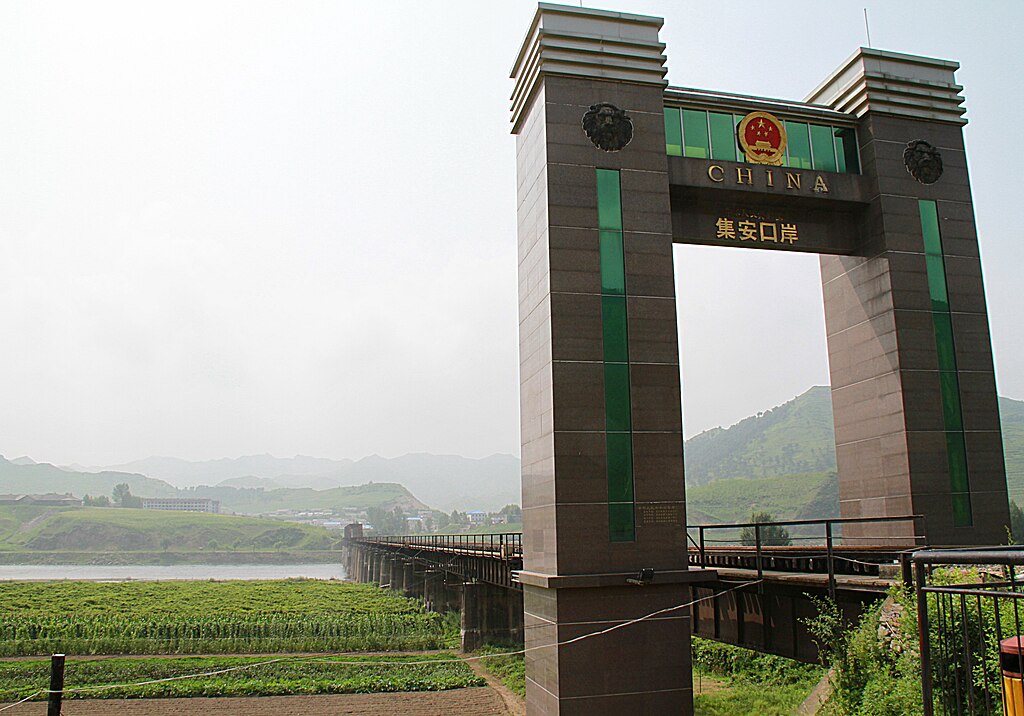 Rolfmueller, CC BY-SA 3.0, Wikimedia Commons
Rolfmueller, CC BY-SA 3.0, Wikimedia Commons
What Happens After They Escape?
Once a North Korean successfully makes it to the other side, they are strictly interrogated. This is basically to prove that they are not spies sent by the North Korean regime, disguised as defectors.
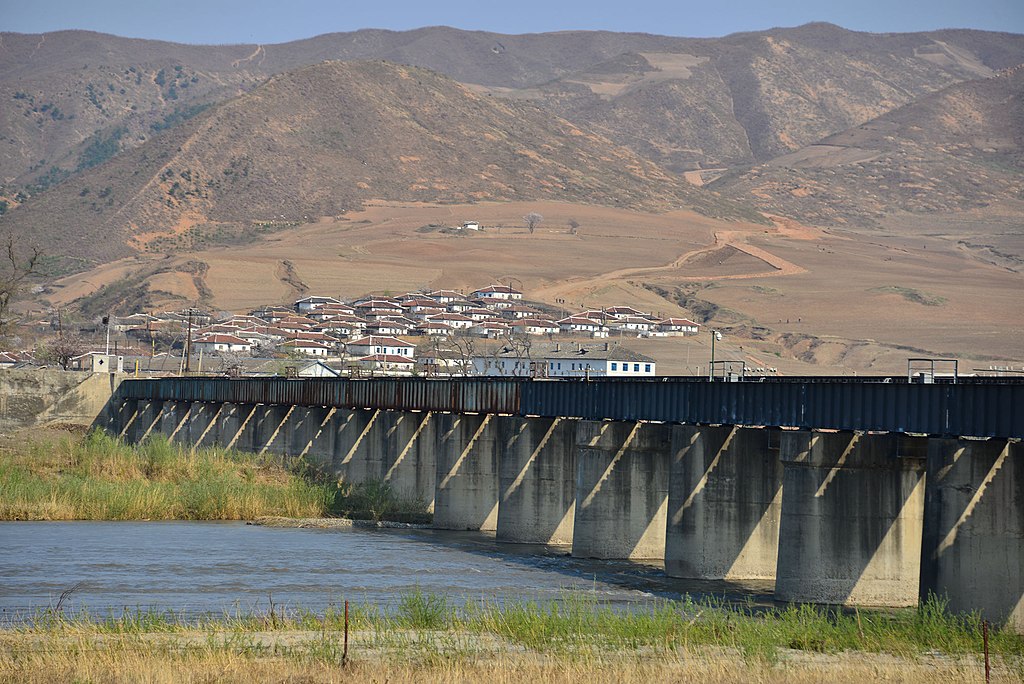 xue siyang, CC BY-SA 3.0, Wikimedia Commons
xue siyang, CC BY-SA 3.0, Wikimedia Commons
Can Anyone Move To North Korea?
Most countries across the globe strictly discourage travel to North Korea in any manner. However, if you have a particular skill or are sponsored by a company for a job there, you may be granted access—but it wouldn’t be easy.
The average person cannot just pick up and relocate to North Korea for personal interest alone. The outside influence you would bring would not be acceptable. They like to pretend the outside world doesn’t exist, and your knowledge would greatly risk that secret.
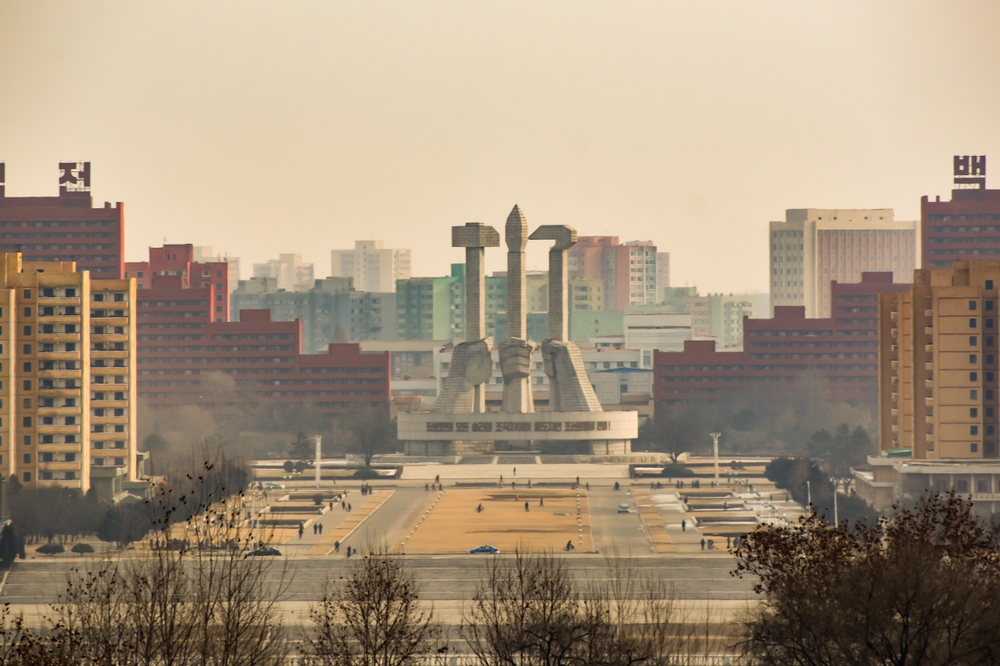 Stephen A. Rohan, Shutterstock
Stephen A. Rohan, Shutterstock
What Happens If People Don’t Follow The Regime?
North Korean citizens are not allowed to criticize the government, be skeptical of the laws, or protest in any way. If they dare to even speak against the leadership, it is seen as a political crime for which one’s entire family can be punished.
And the punishments for political crimes are severe.
How Are Citizens Punished?
While North Korea prefers the term “labor training facilities,” there are many concentration camps located in the country. They had become a regular “form of punishment” in 2004, and more were built in 2007 when additional crimes were added to the list.
These camps act as the North Korean prison system. Anytime a person is deemed as disloyal to the leader, they get forcibly sent to camp—and as we now know, loyalty is a big deal.
Political Prisoners
About six of these camps are for political prisoners—anyone who goes against the government in any way. This can include something as simple as a child asking, “but why?” in relation to the Ten Principles. It can also include owning a bible.
Anything that goes against the government’s beliefs will land you in a political prison camp—and it’s quite possibly the worst thing that could happen.
Political Prison Camps
Most people who end up in the political camps are not given any sort of trial. They are immediately deemed as “politically unreliable” and not deserving of an explanation.
Prisoners are beaten, starved, and forced to perform dangerous slave labor. The guards are trained to see the inmates as “subhuman,” and dish out brutal punishments for working too slowly, speaking, or showing weakness.
The worst part though, is that you don’t even have to be the wrongdoer to end up in one of these camps.
Who Else Gets Imprisoned?
In North Korea, many people are imprisoned simply for associating with someone who has done wrong in the eyes of the leaders. In fact, there is a specific camp, known as “No. 18,” for those who are “guilty by association".
This is where the family and close friends of the wrongdoers go—and they take more people than you’d think.
How Many Family Members Get Taken Away?
When someone speaks ill of the leader, their entire family pays the price. Three-generations, to be exact. Not only will brothers and sisters be taken, so will mothers, fathers, aunts, uncles, and grandparents.
They wipe out the whole family—and no one is exempt.
What About Children?
When we say the whole family pays the price, we mean it. This includes pregnant women and children. Tragically, some children are born and raised in these prison camps because their parents are imprisoned for crimes that their grandparents committed.
Believe it or not, No. 18 is not even the worst camp.
What Is The Worst Concentration Camp?
According to Min-Chul, a former detainee of camp No. 15: “Serious offenders are sent to camp No. 25, a place you cannot exit alive".
Some say it is a camp for political offenders only, others for felons, religious leaders, and members of factions. One man was apparently taken there after distributing bibles that he got from China—a religious crime that greatly contradicts the leader’s beliefs.
What Are The Concentration Camps Like?
The various camps are said to have conditions that are comparable to historical concentration camps. Not only do prisoners live in filth, they are starved, beaten, tortured, and subjected to inhumane acts, depending on the severity of their disloyalty.
And, in alignment with history, many camp detainees don’t make it out alive.
The Reality Of The Camps
Sadly, a lot of North Koreans perish while they’re imprisoned. The general mortality rate is exceptionally high in North Korea, and this is because prisoners often die of starvation, illnesses, work accidents, or torture.
The government also publicly and secretly executes people (including children)—especially when they suspect an attempted escape. In that case, they may publicly execute several inmates in the area as a warning to the others.
Infanticide is another horrific consequence for babies born within some of the camps. As awful as this is, some people still make it out.
Does Anyone Get Out Of The Camps?
For less severe crimes (stealing food, illegal trading), some people are able to re-enter society after the government believes they’ve served their time. These people are usually in the “reeducation camps” where, after performing slave labor, they are forced to study the ideologies and memorize speeches from past leaders.
But there’s one more type of camp that we mustn’t forget.
The Resort Camps
The “resort” camp is where they keep senior members of the regime who have for some reason withdrawn their support, and members of the Kim family who are deemed as a threat to the dictators’ rule.
Here, they still have to do labor jobs, but they are given adequate amounts of food and rest. However, they are never allowed to leave.
Aside from talking badly about their government, North Korean citizens have several other rules to follow.
North Korea Today
eIn recent years, many North Koreans have secretly outsmarted their government and found ways to discover life beyond the border. It is believed that many citizens are aware of the control tactics and have started behaving in ways that will benefit them—playing the game, so to speak.
Sneaky citizens have also implemented an extensive smuggling operation that brings in various media sources, books, and items that are typically not allowed in North Korea.
The Future Of North Korea
However, it is also widely believed that a large number of uneducated people living outside the nation’s capital are still completely ignorant about the outside world. They know only what they are told, and often believe this is the only way of life—for everyone.
And although some progress has been made, it’s hard to say what the future looks like for North Korea.

